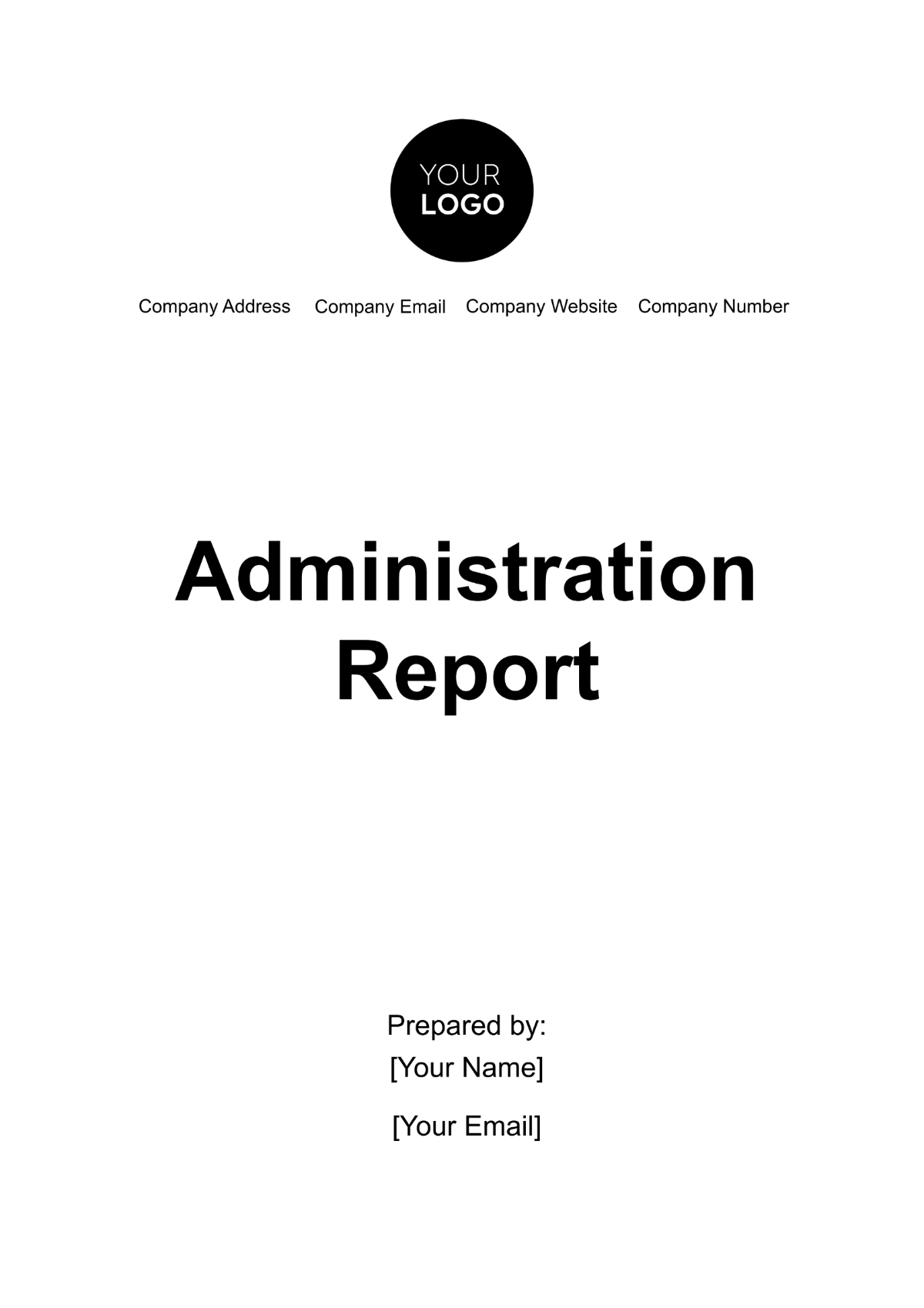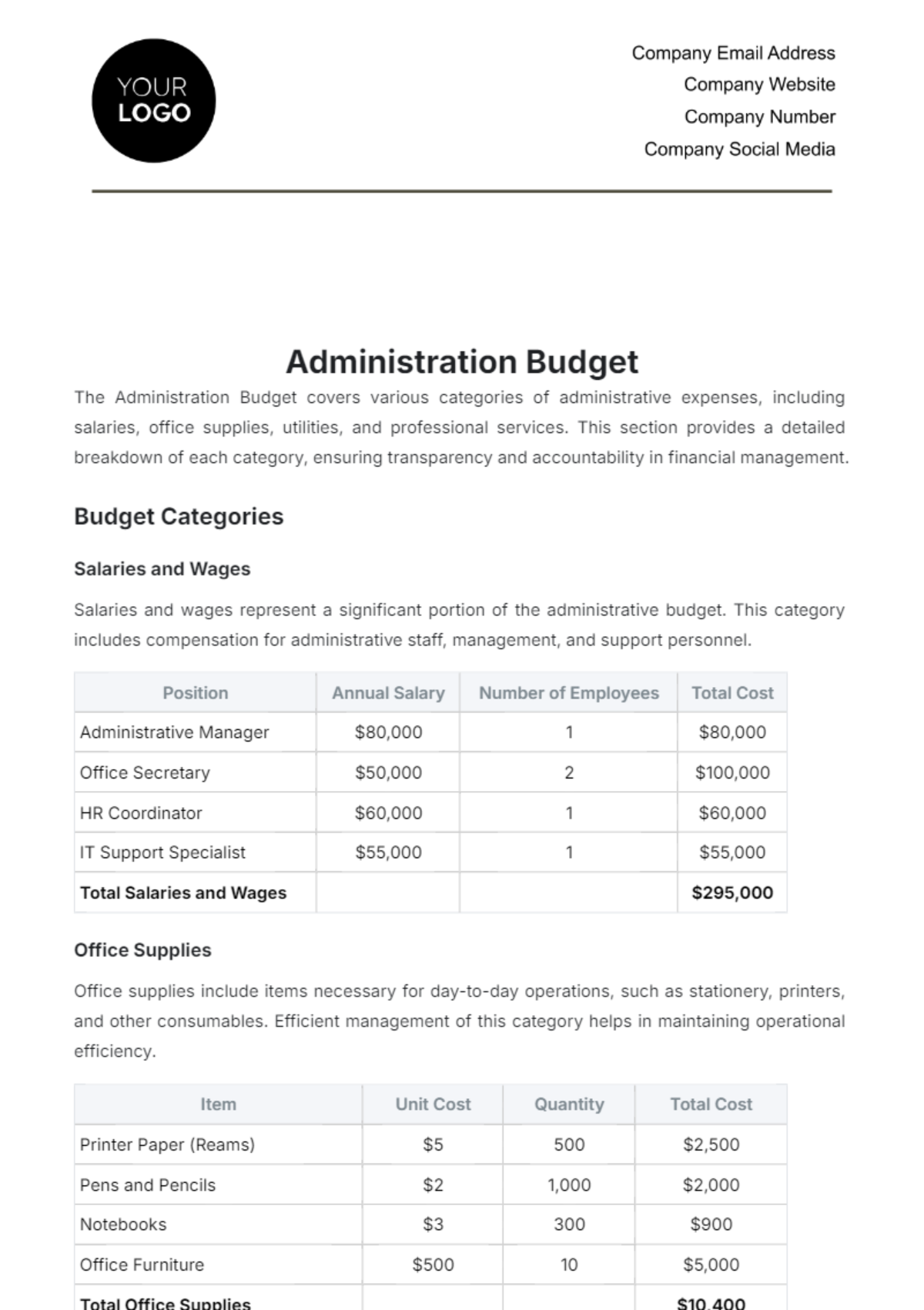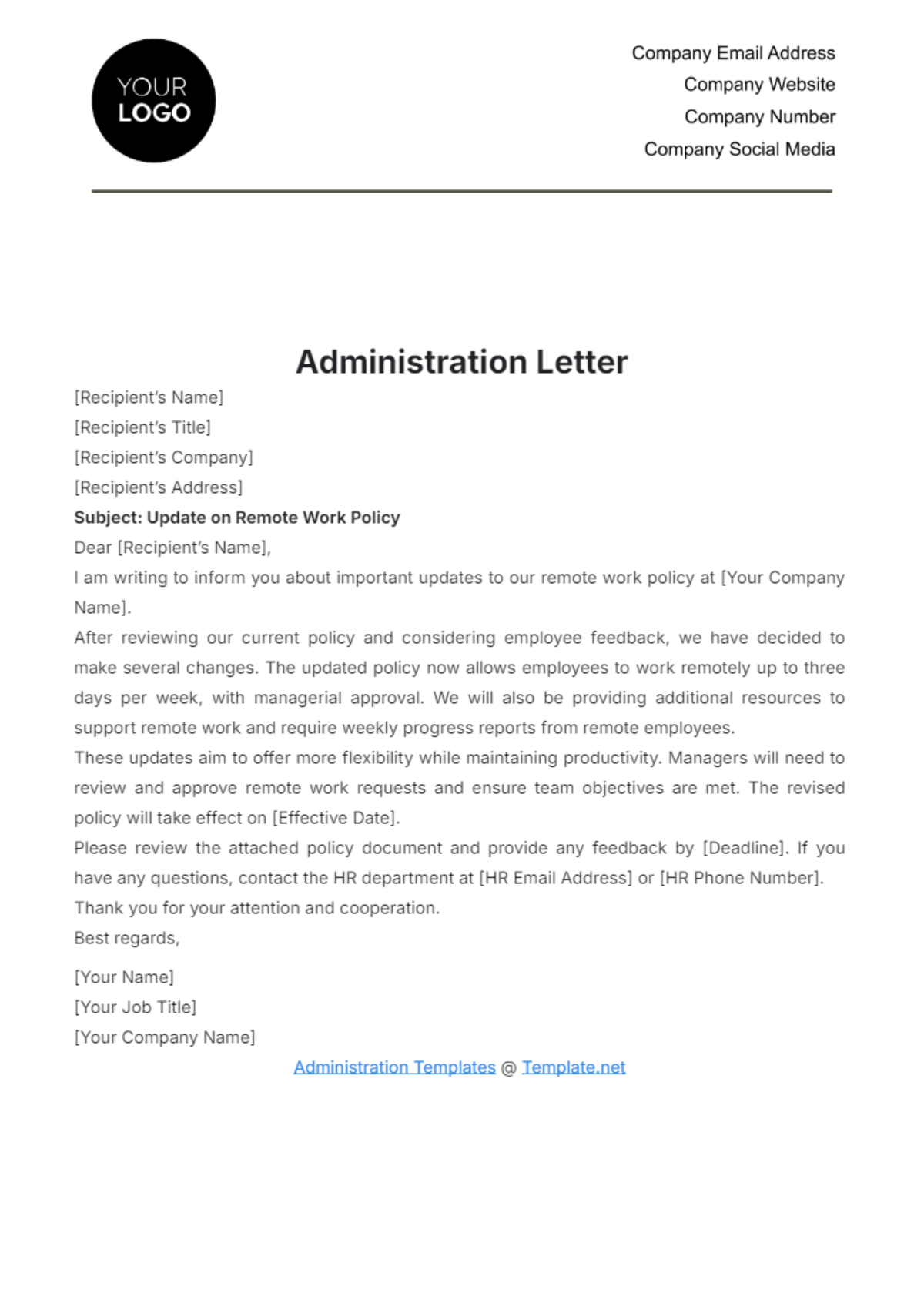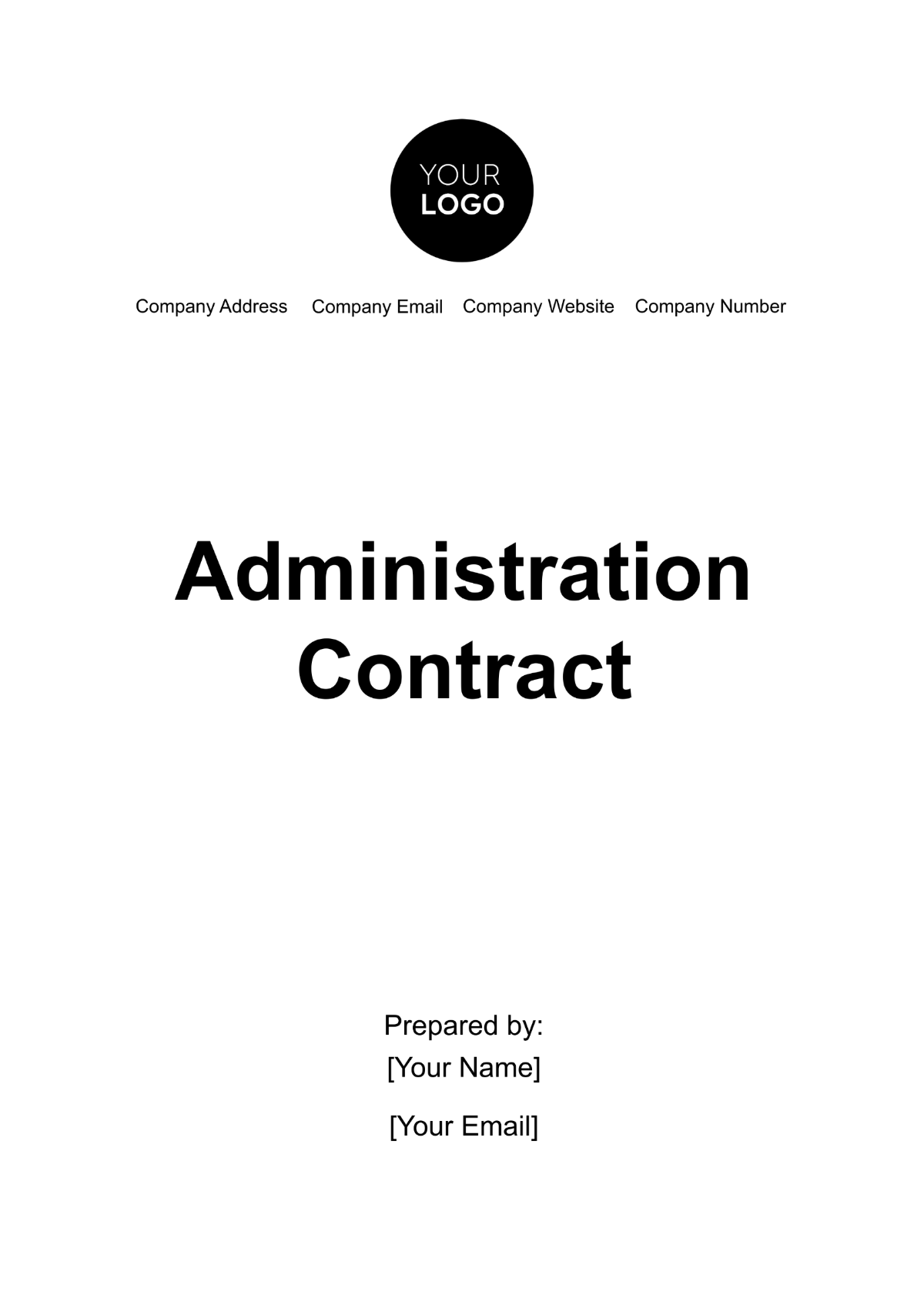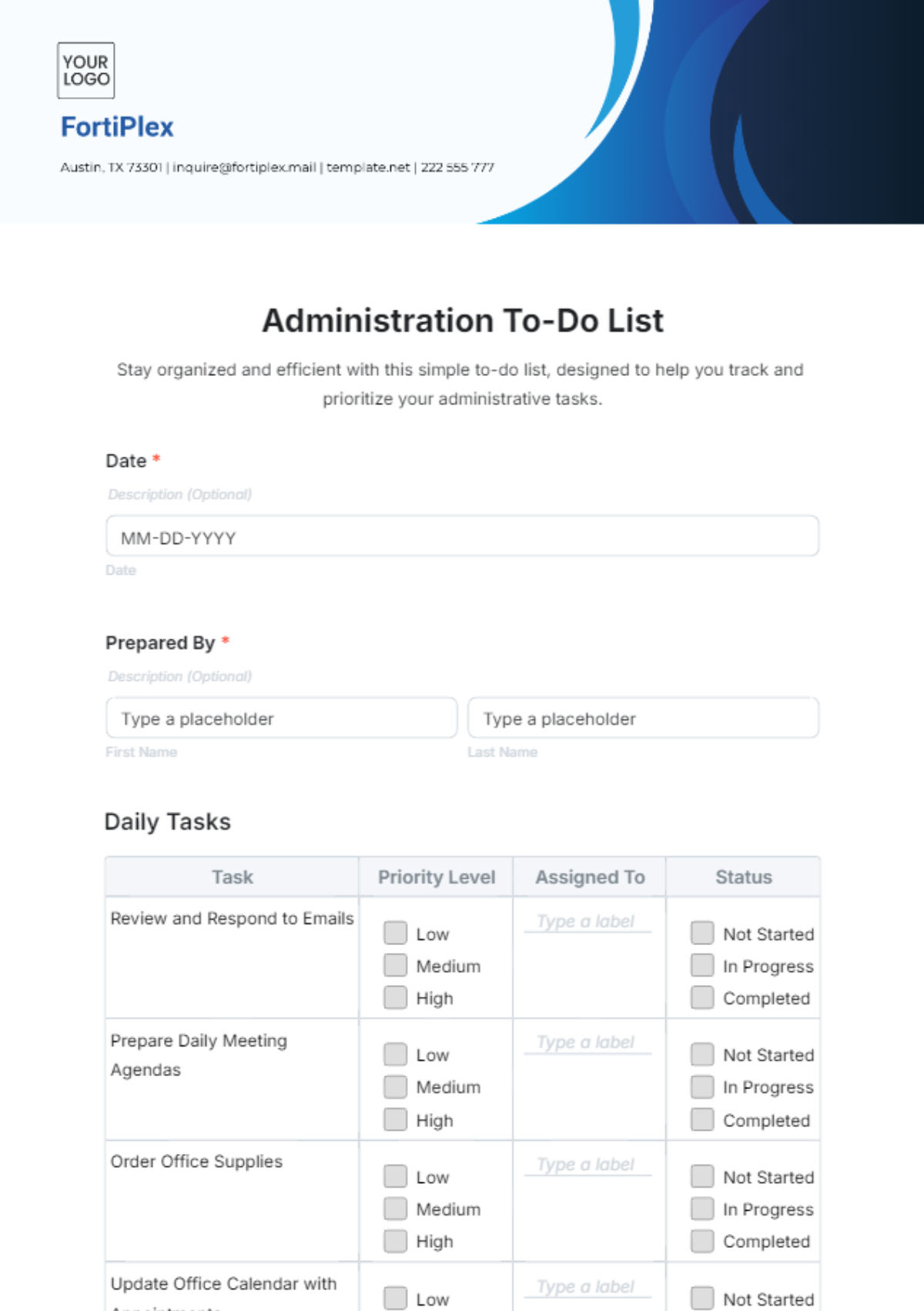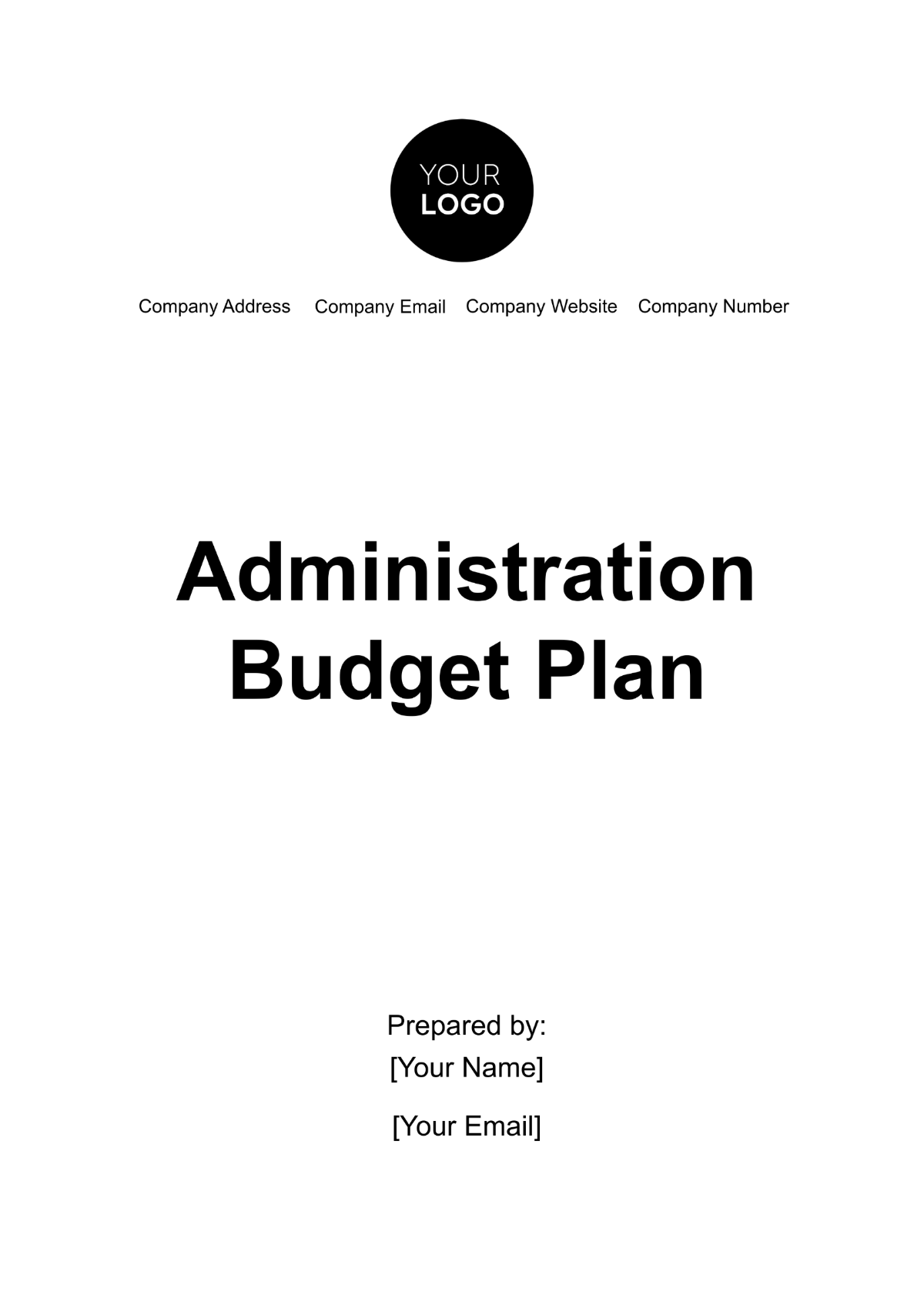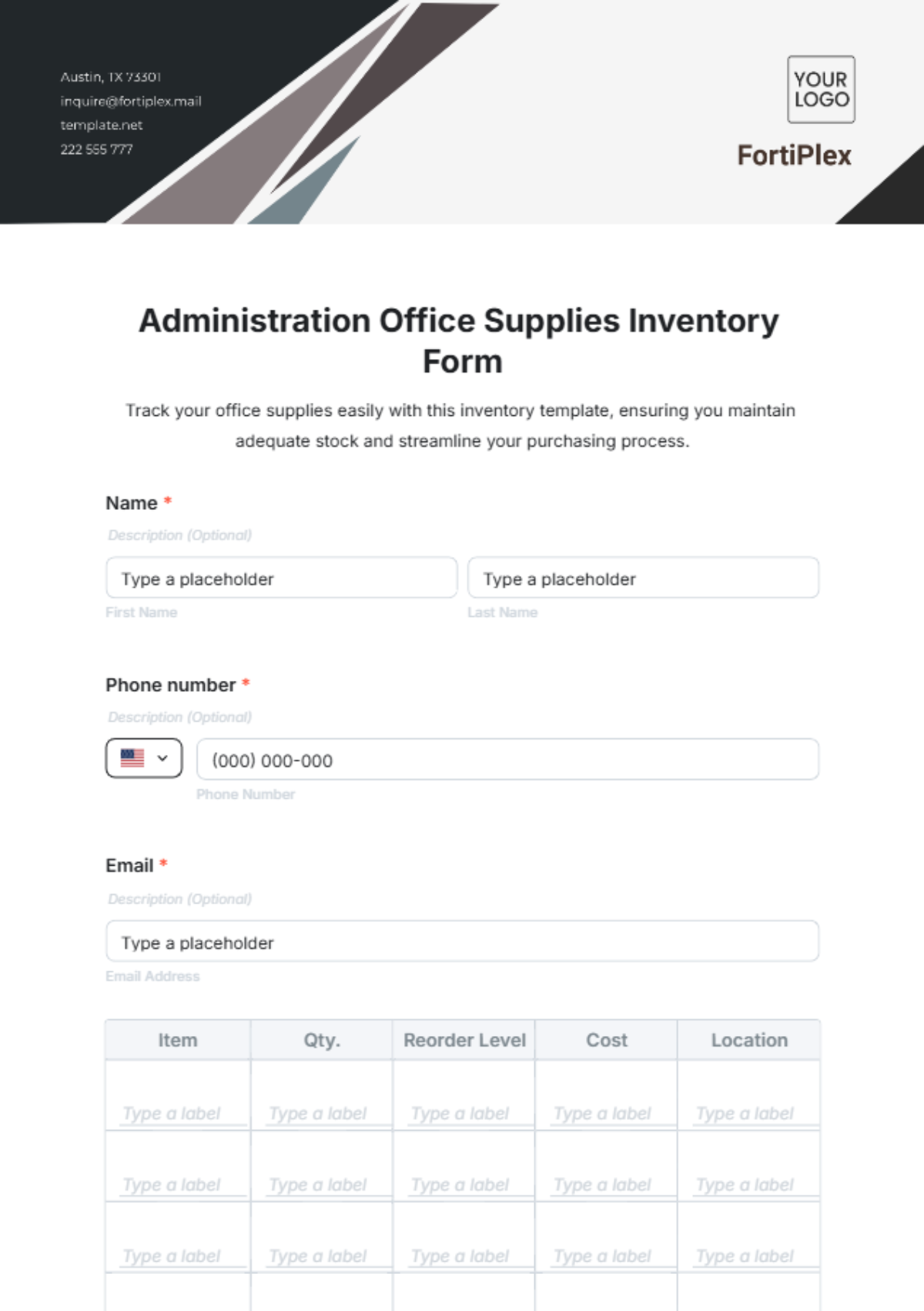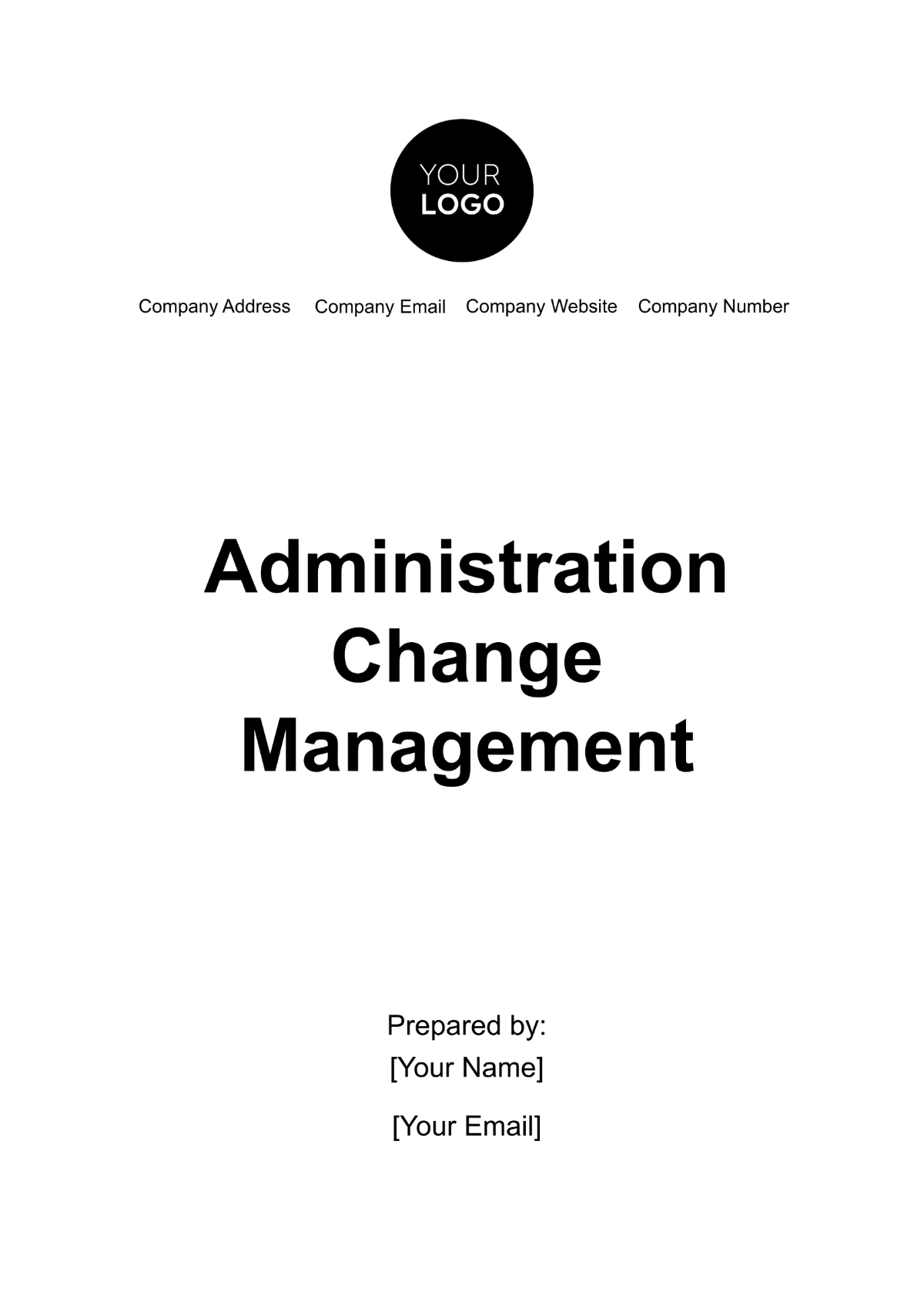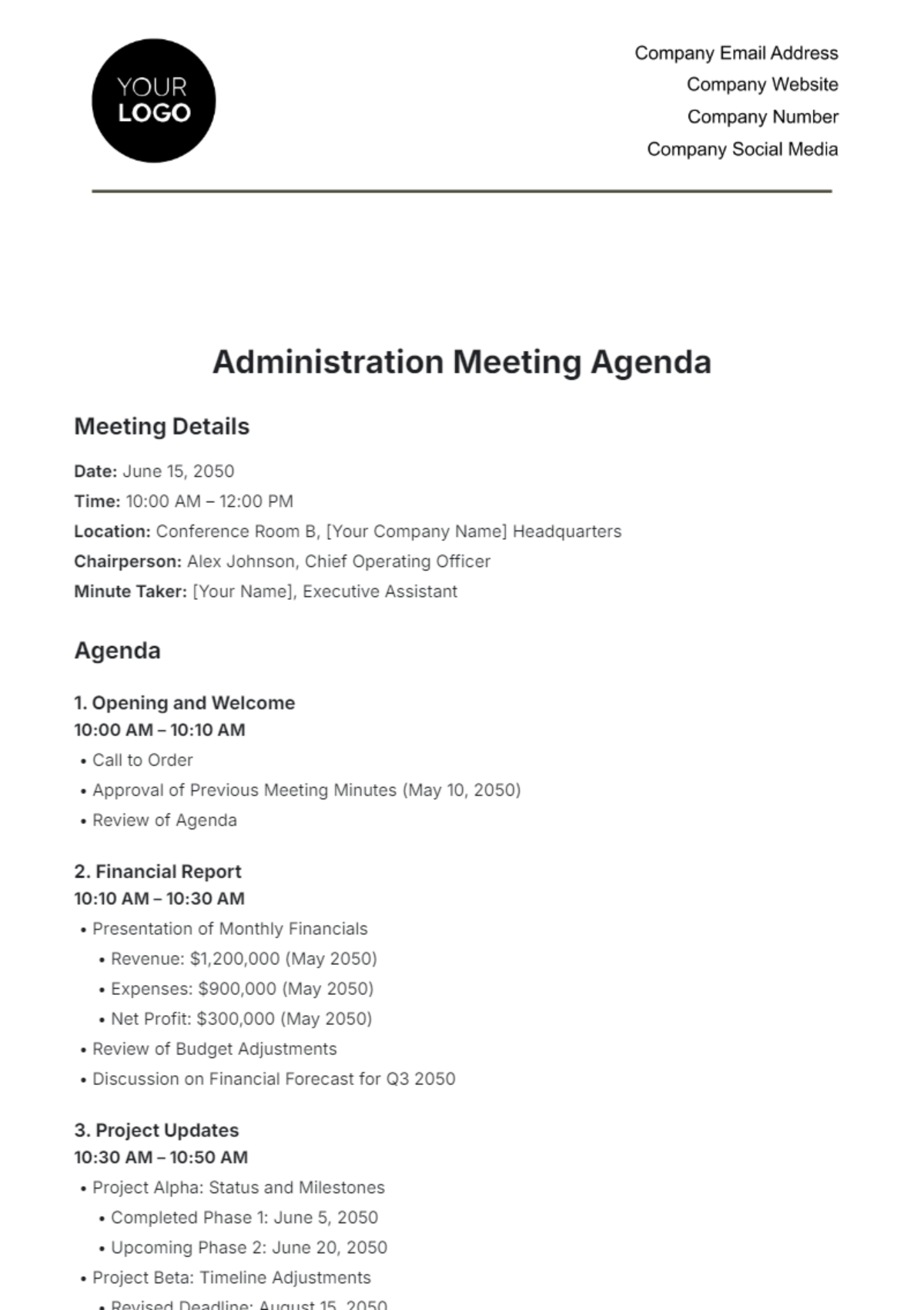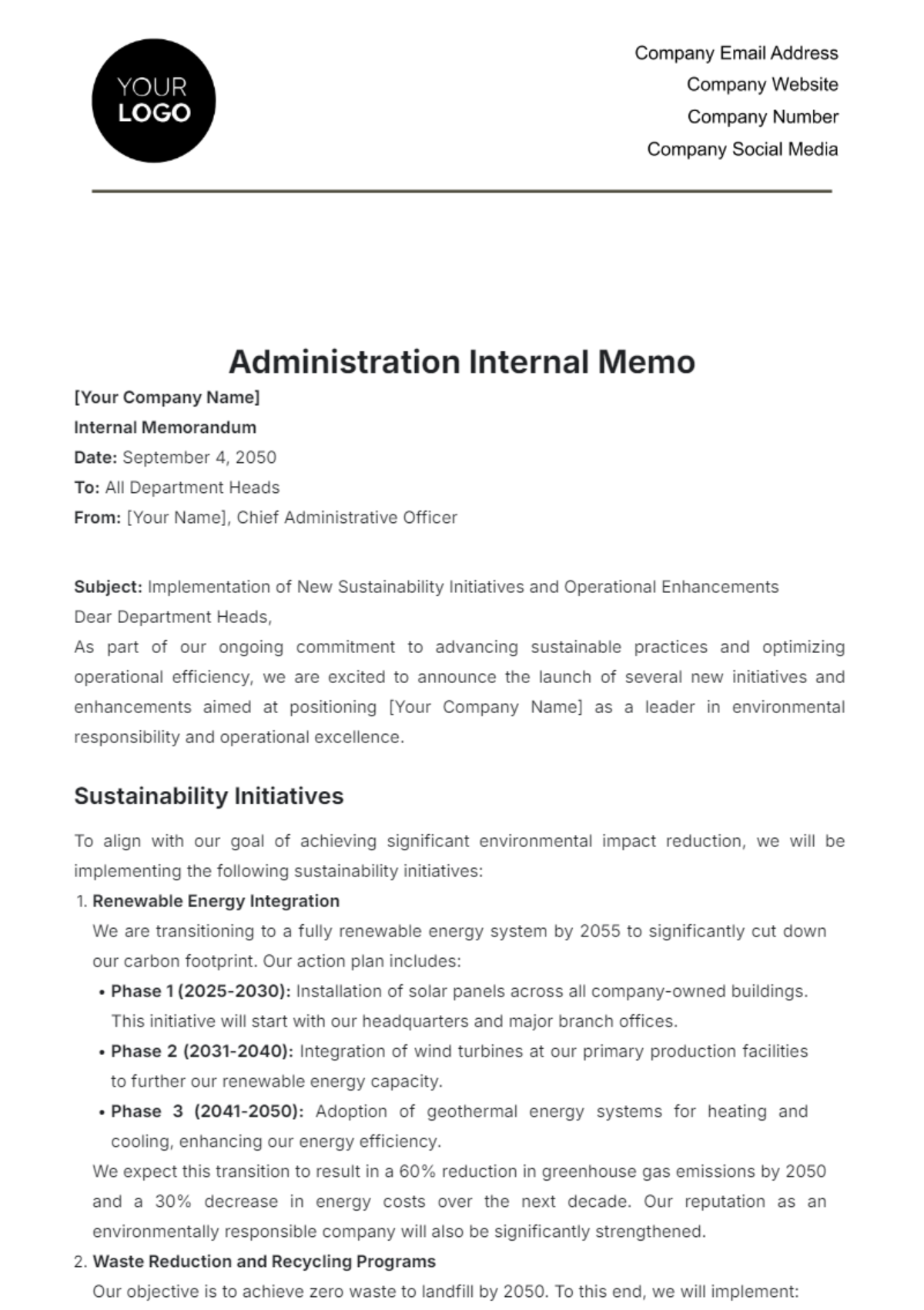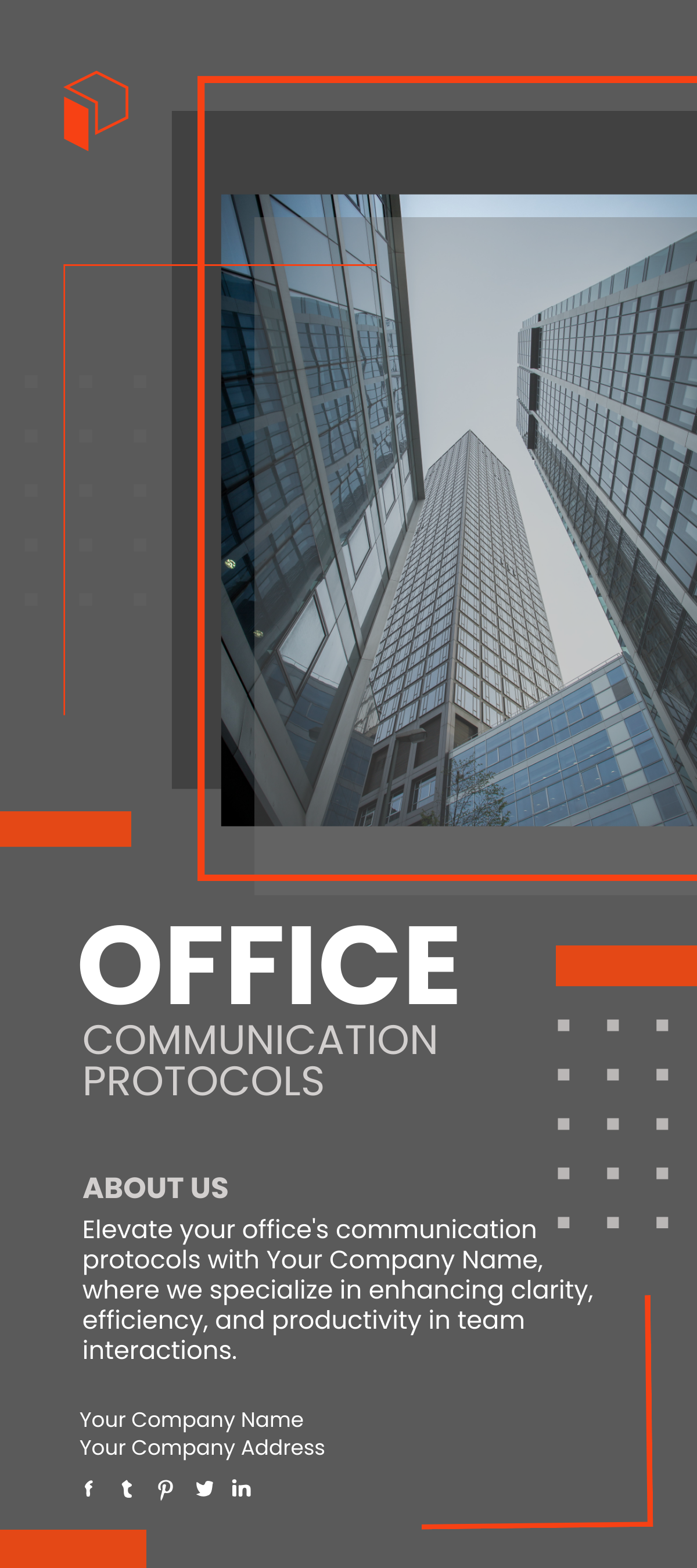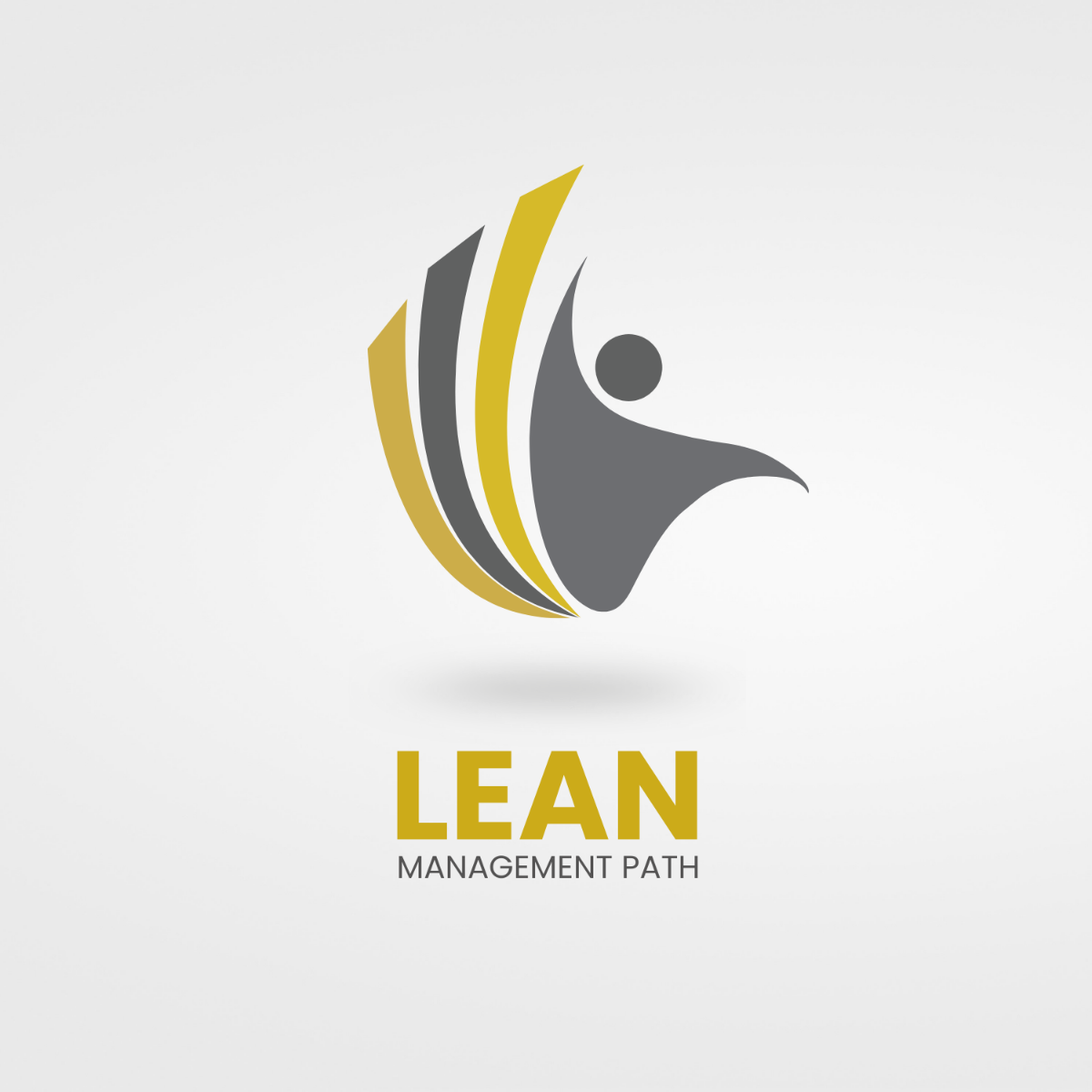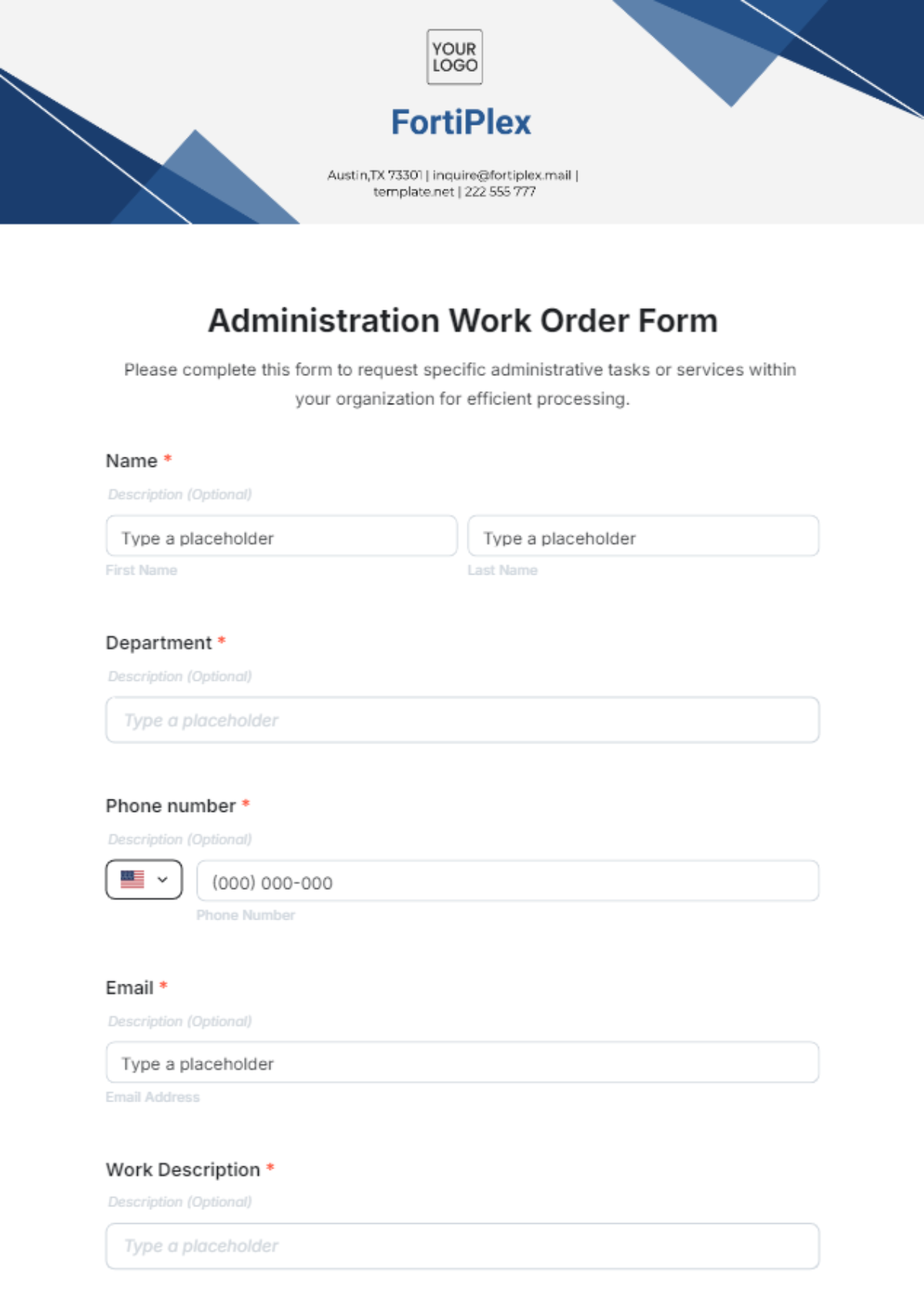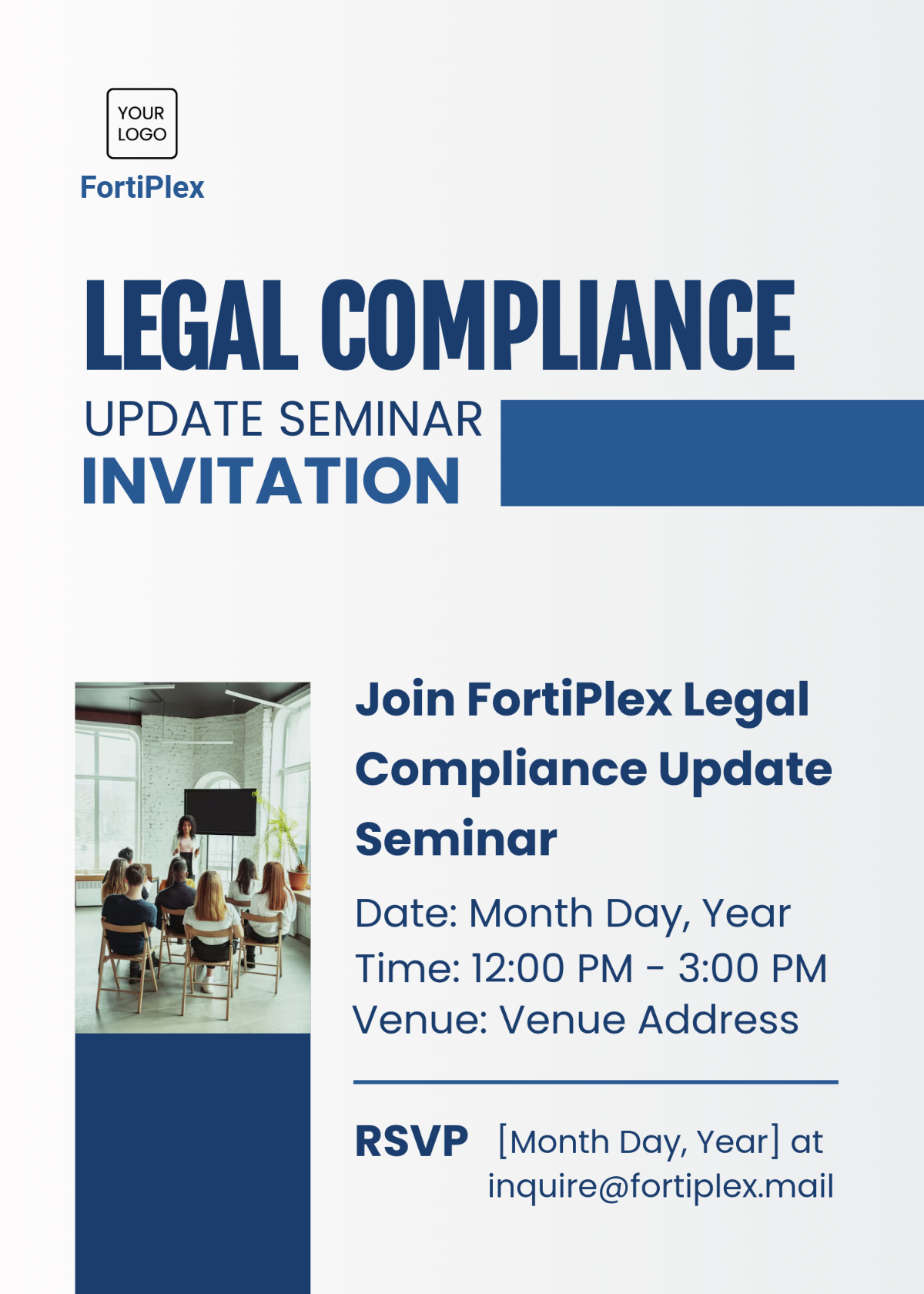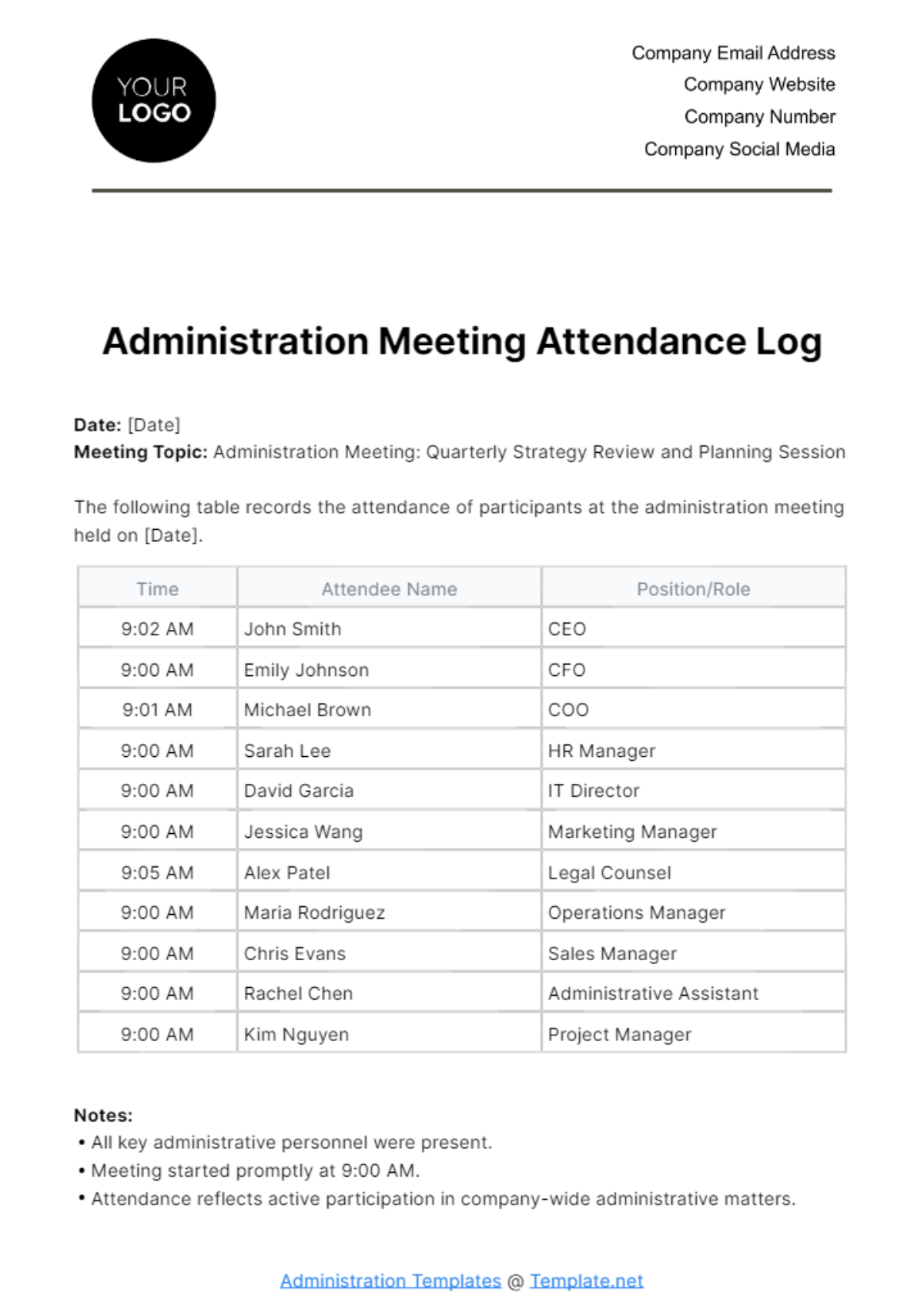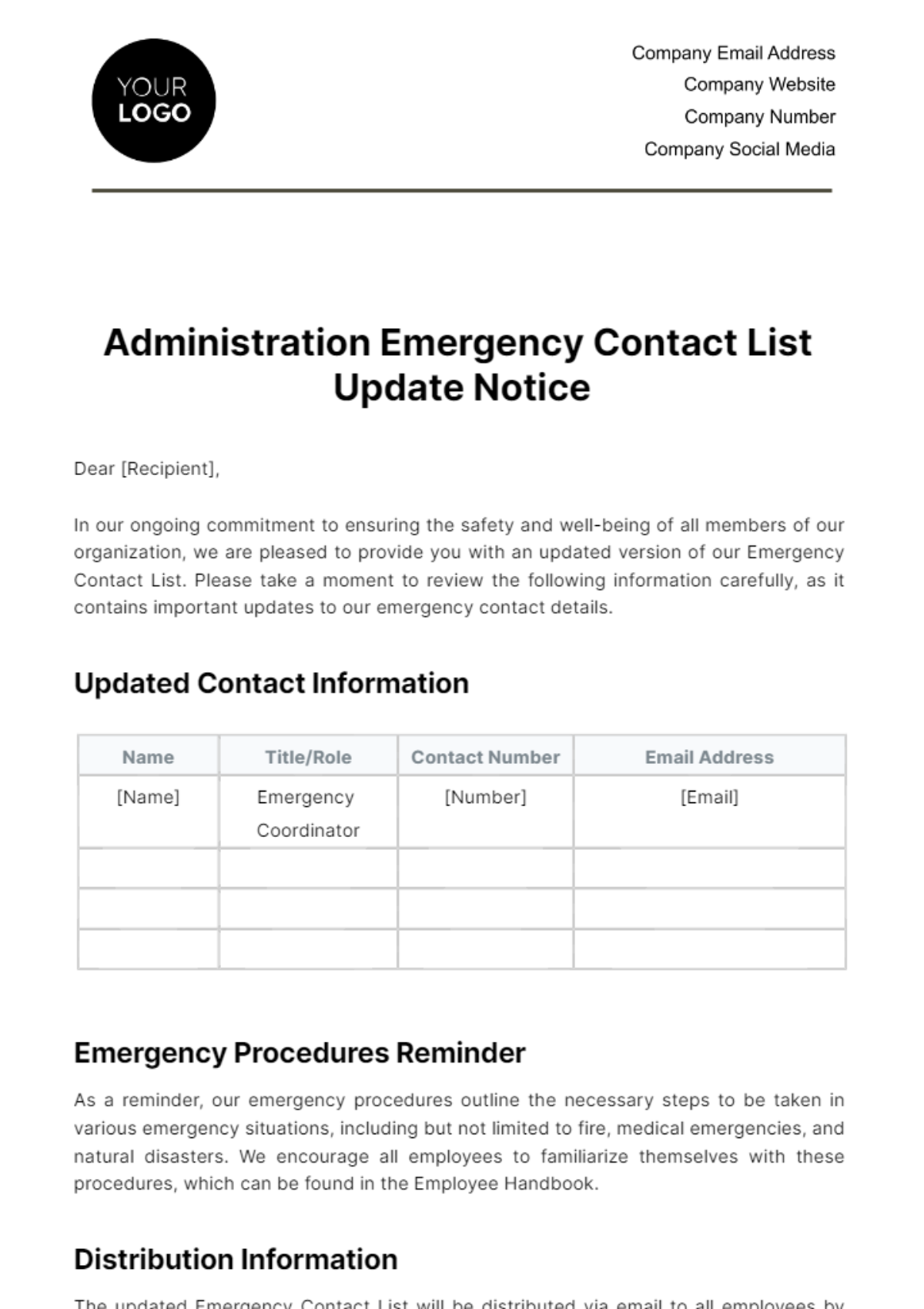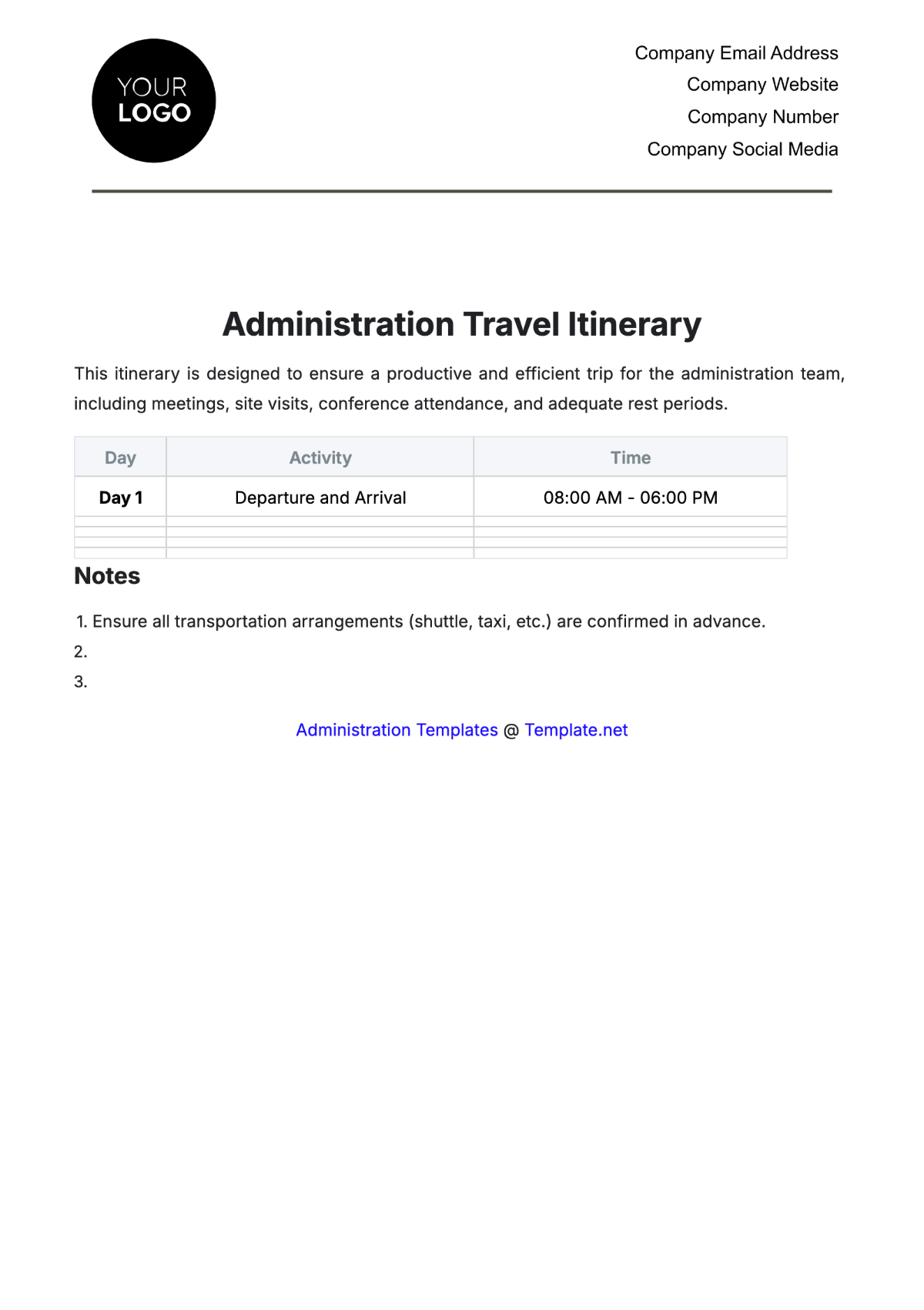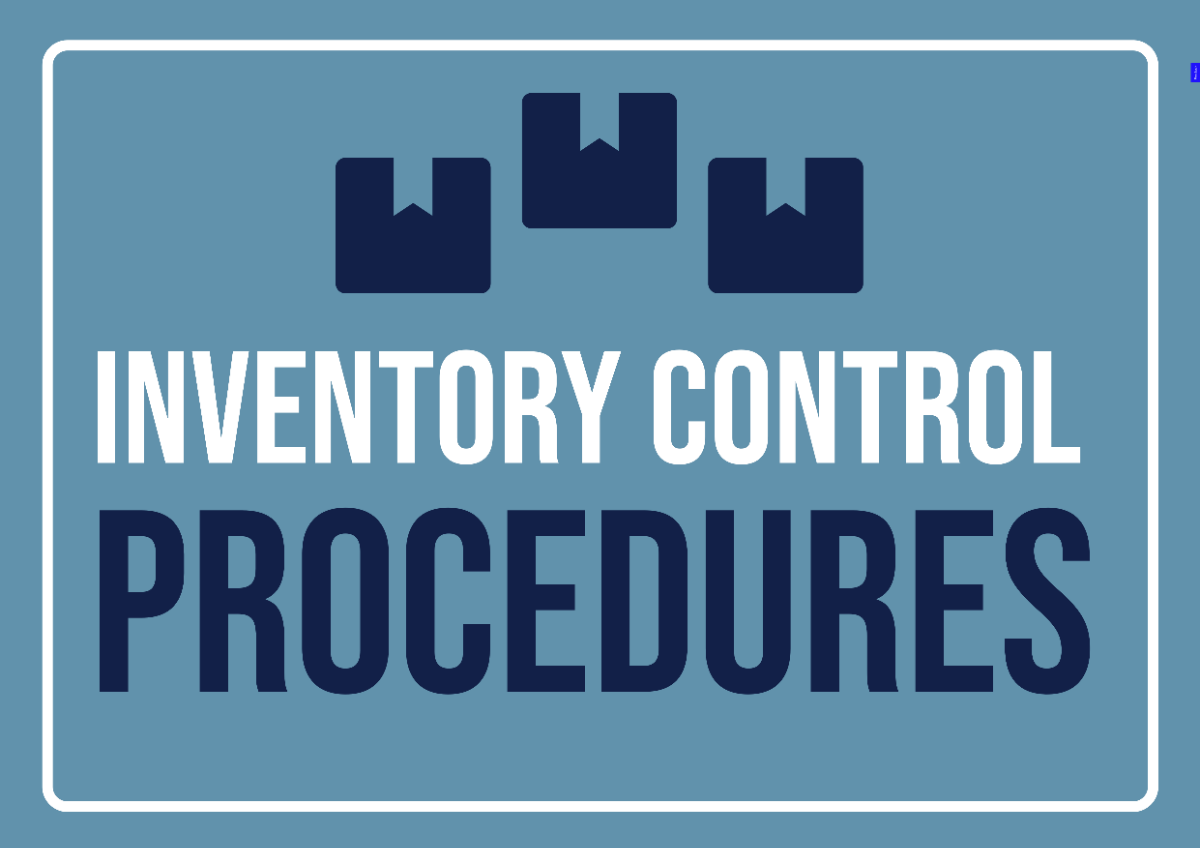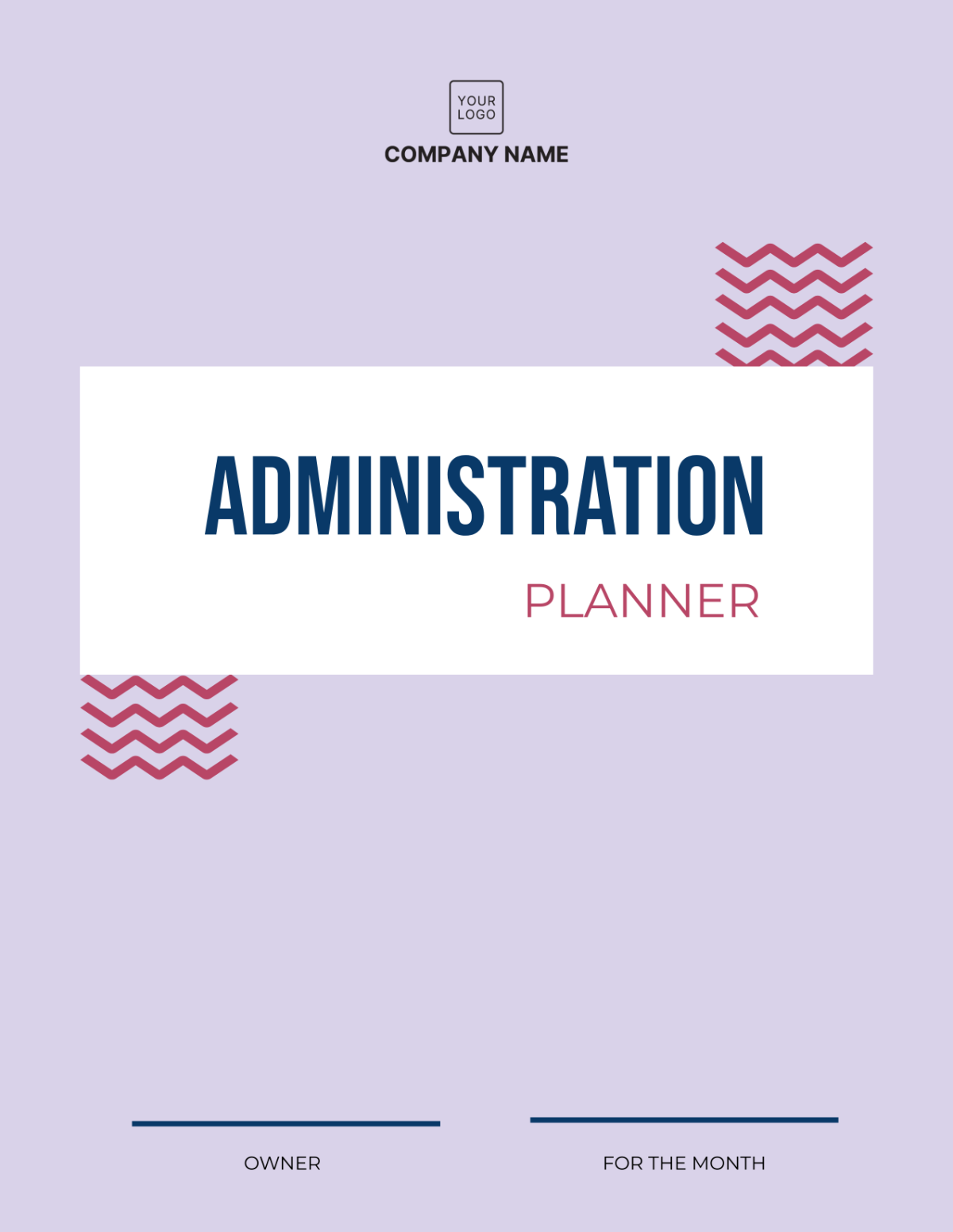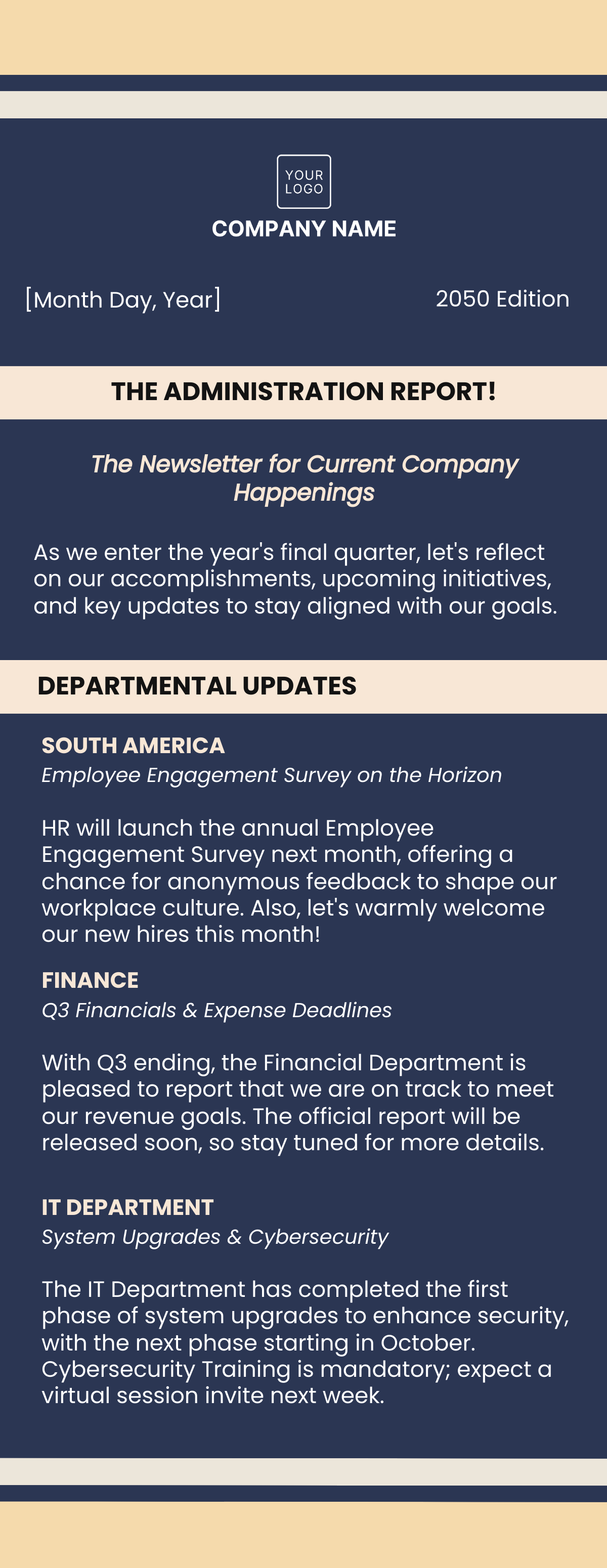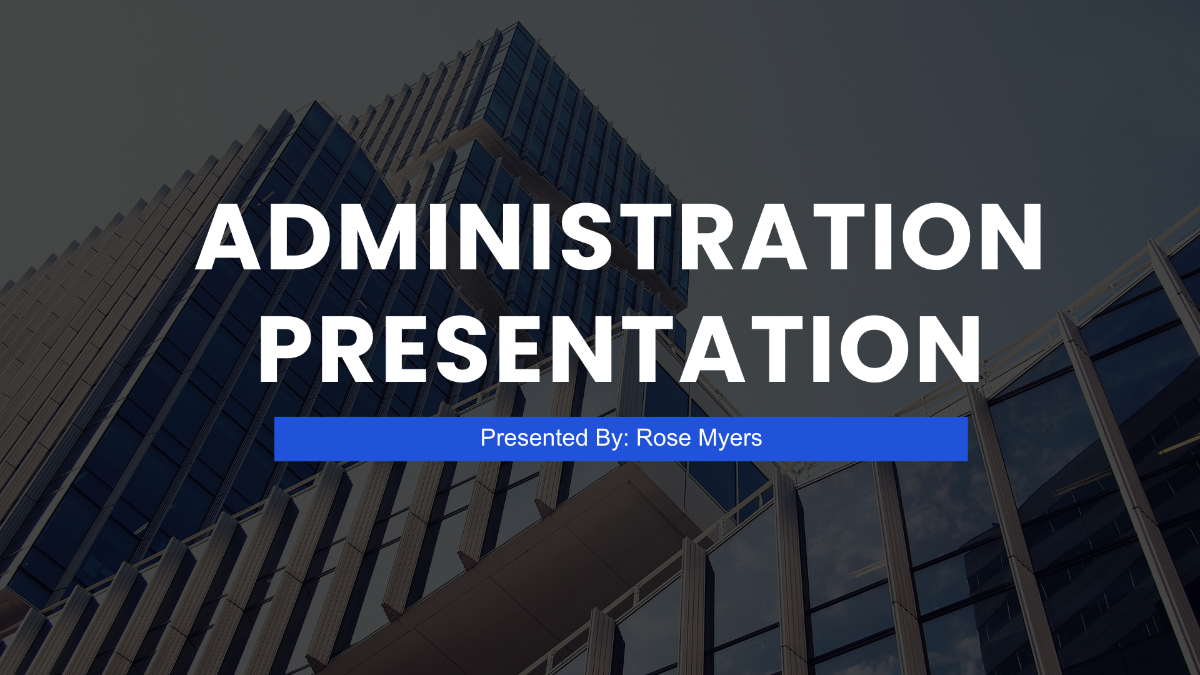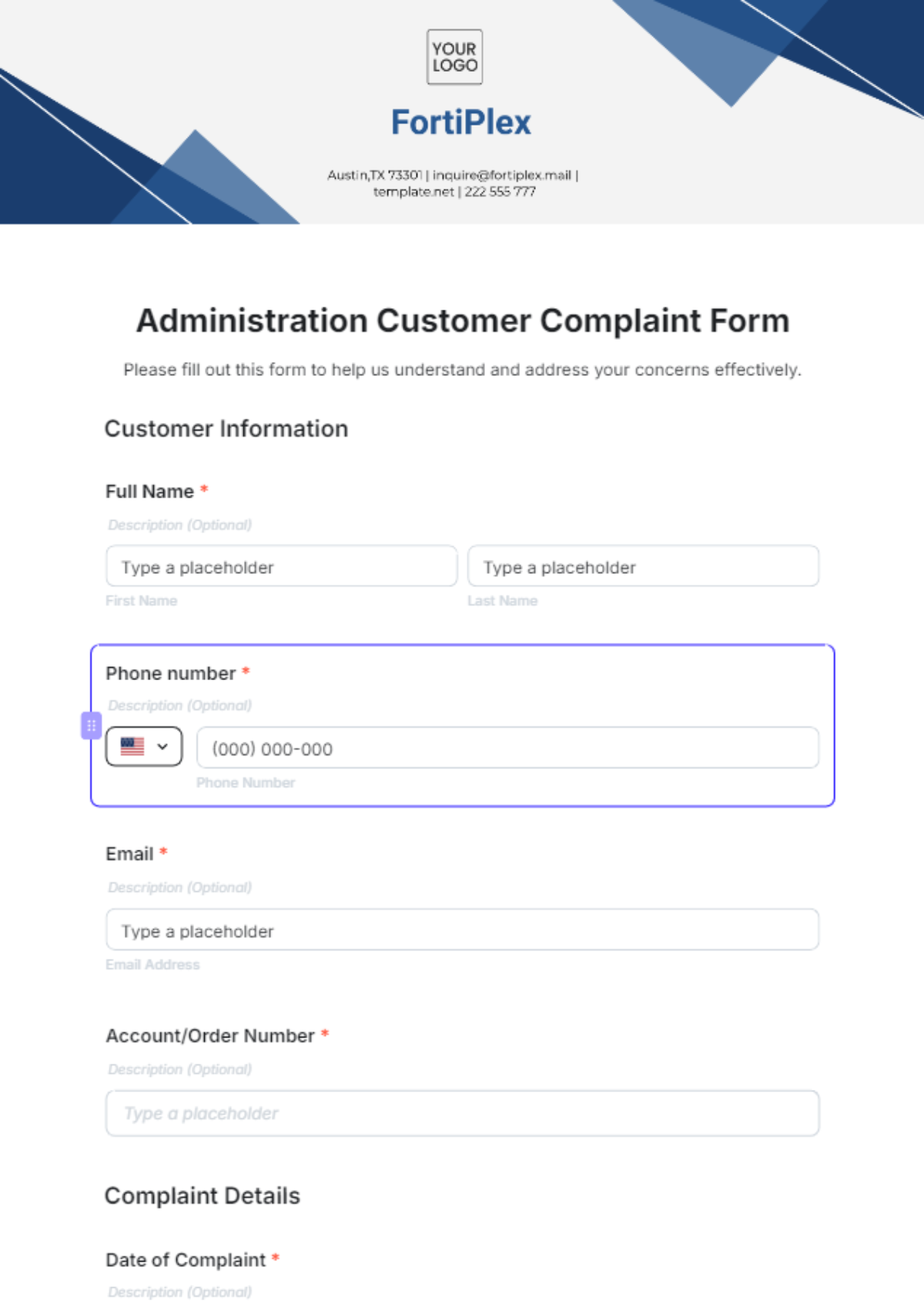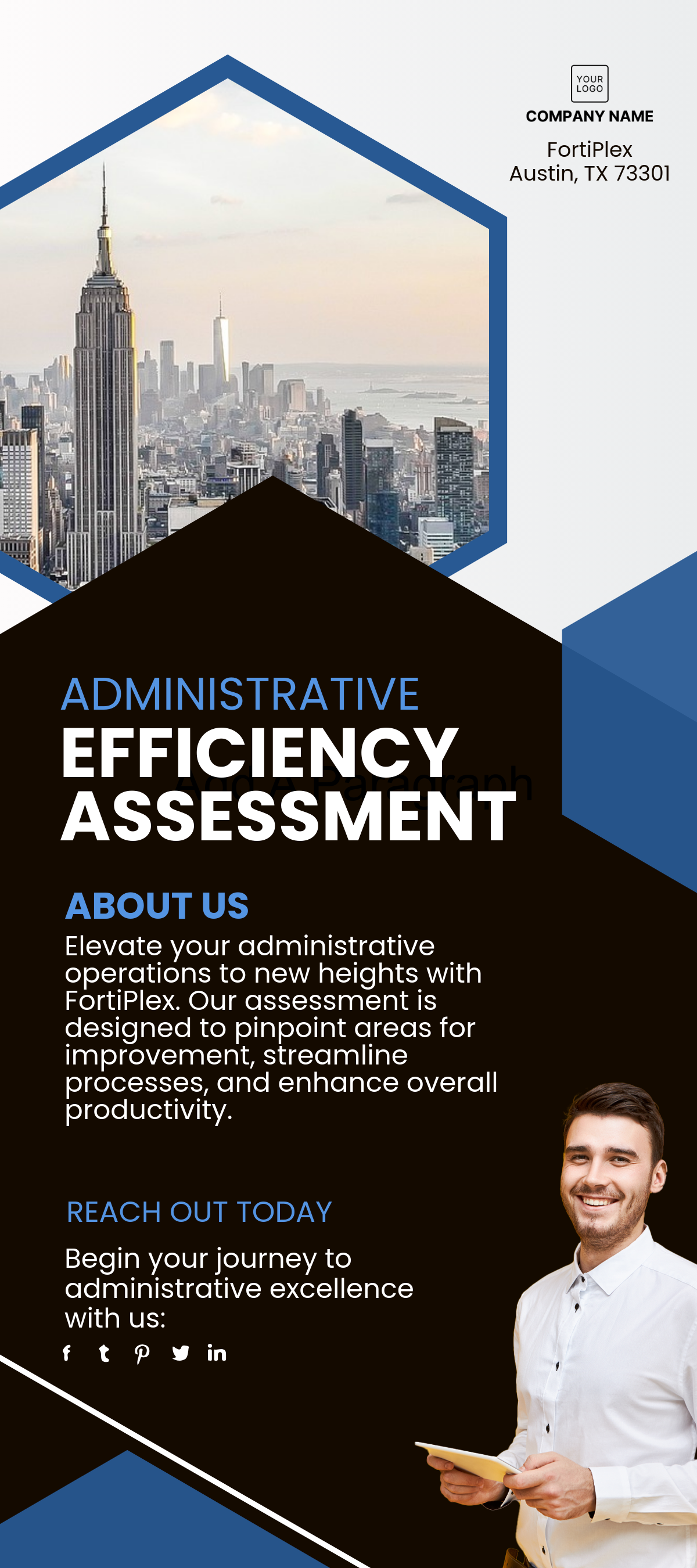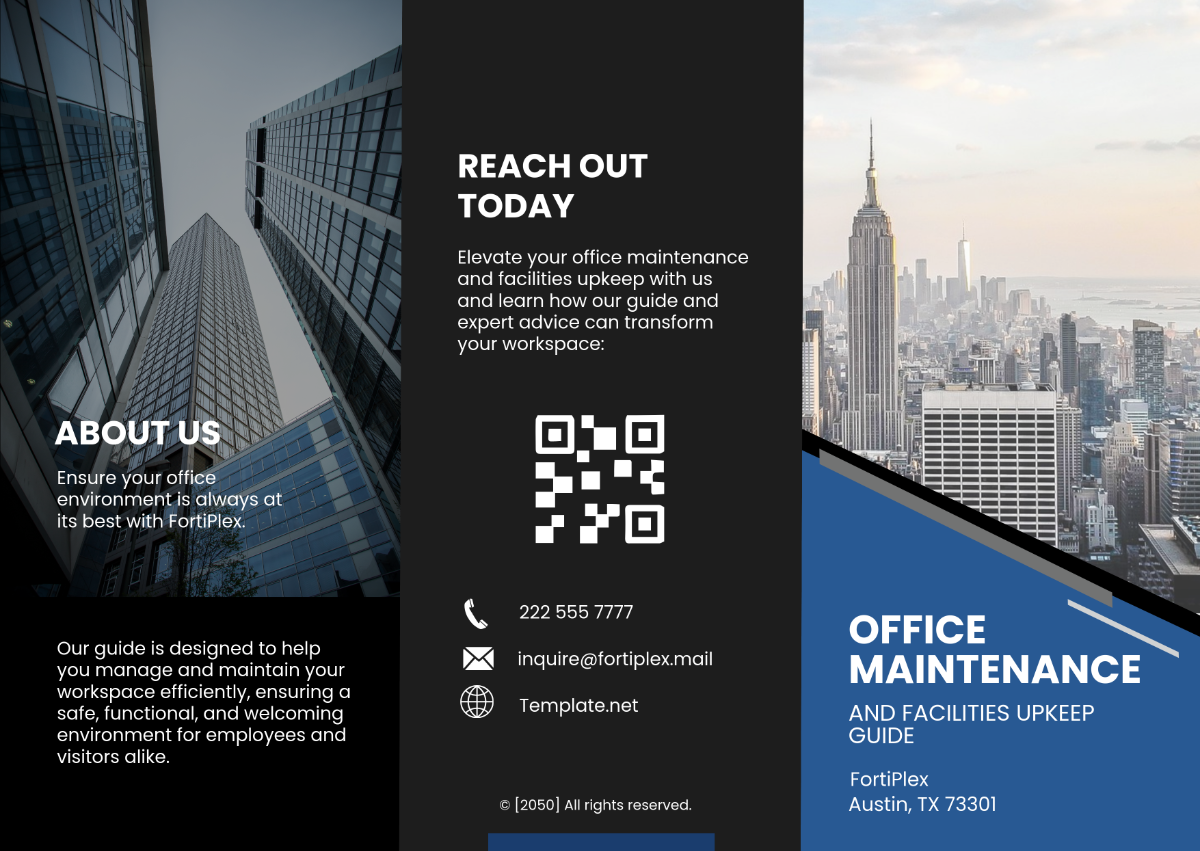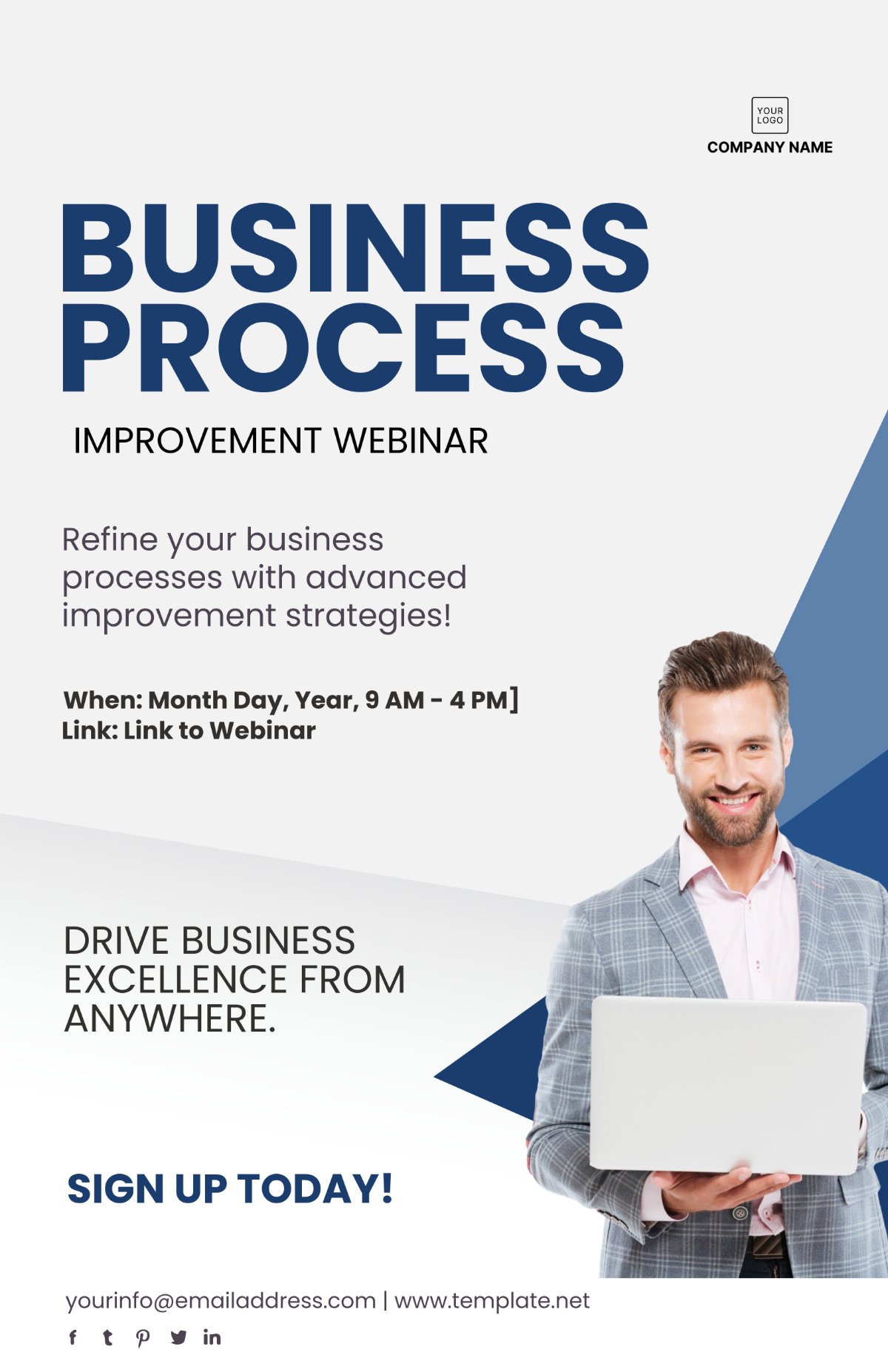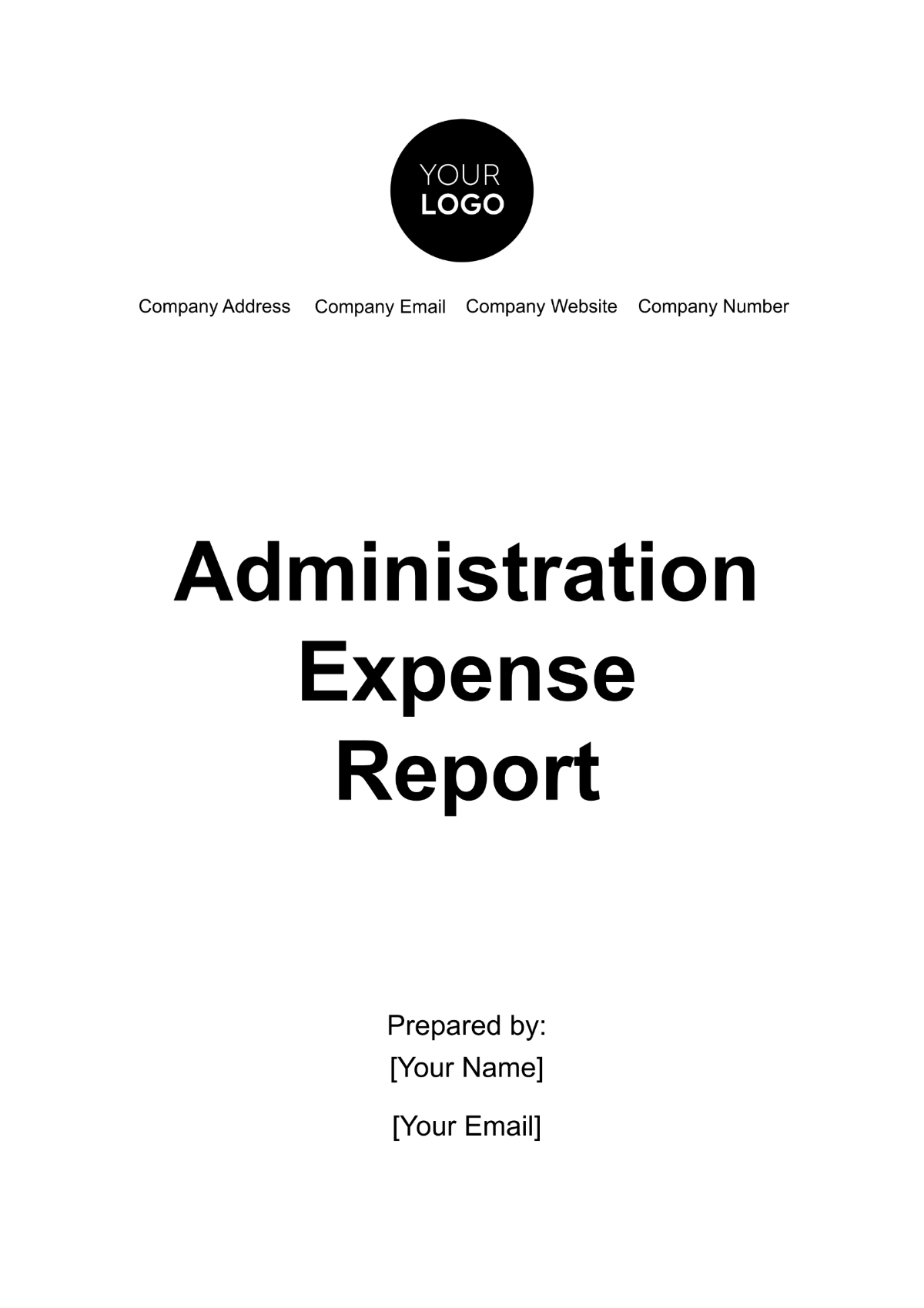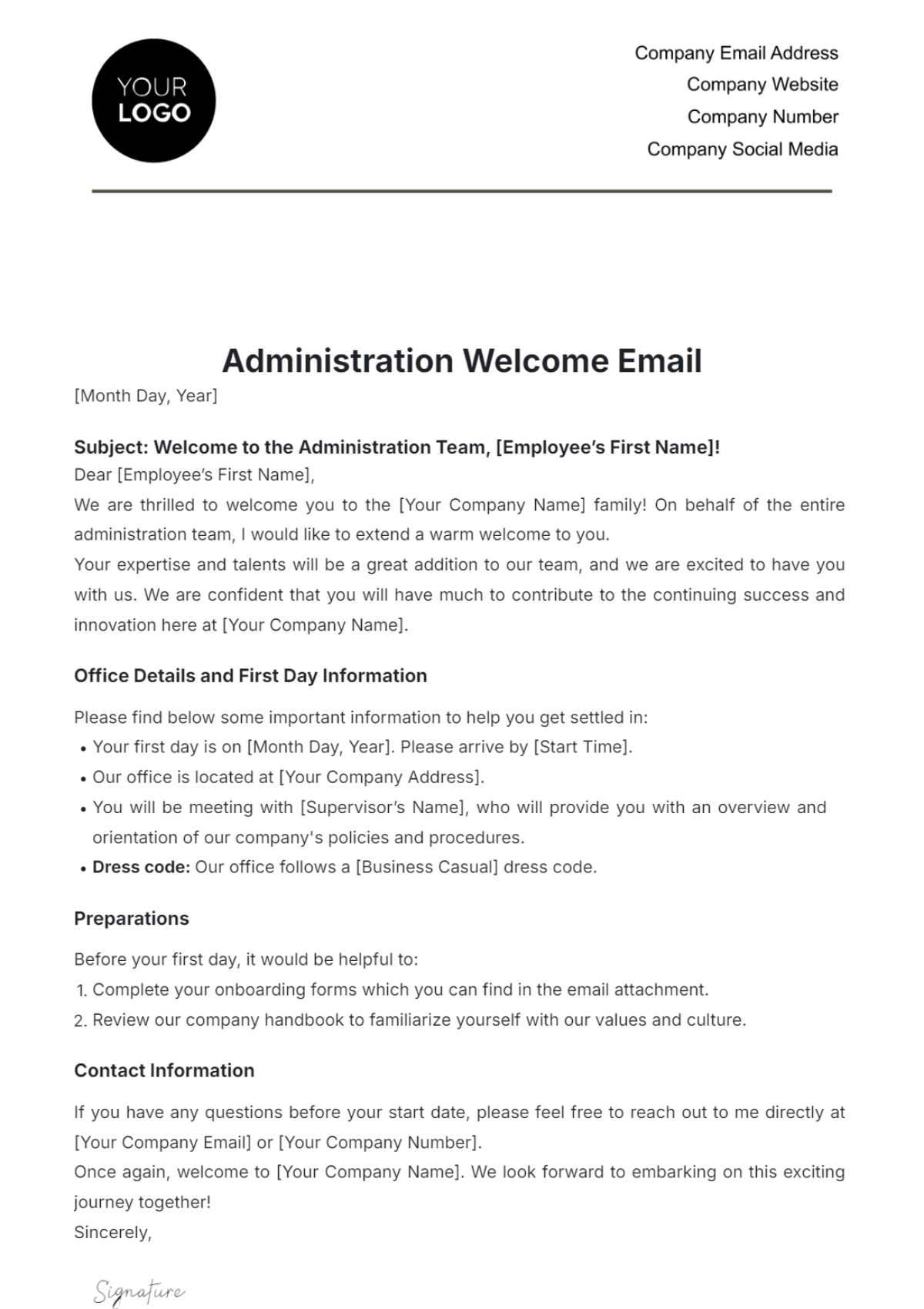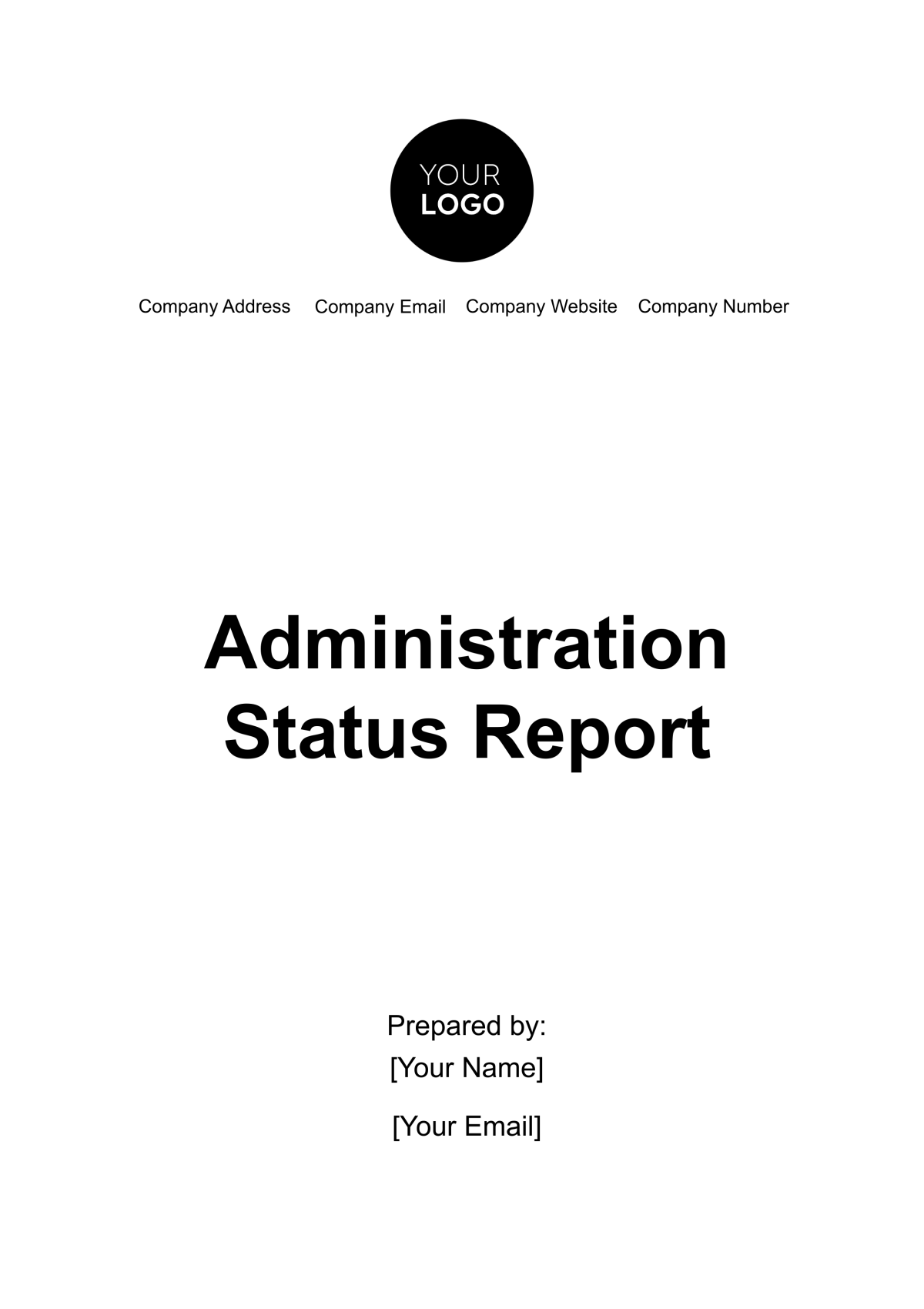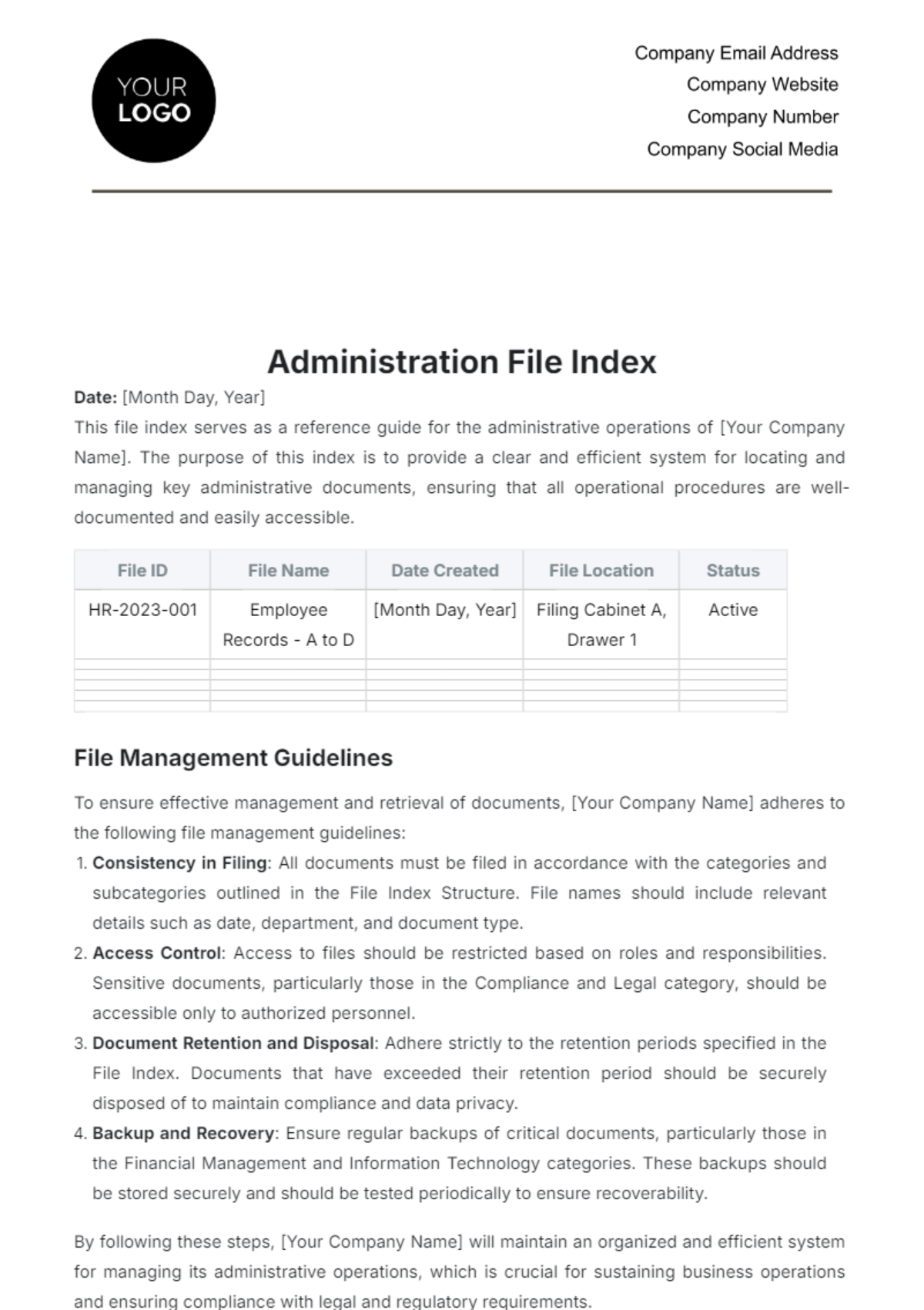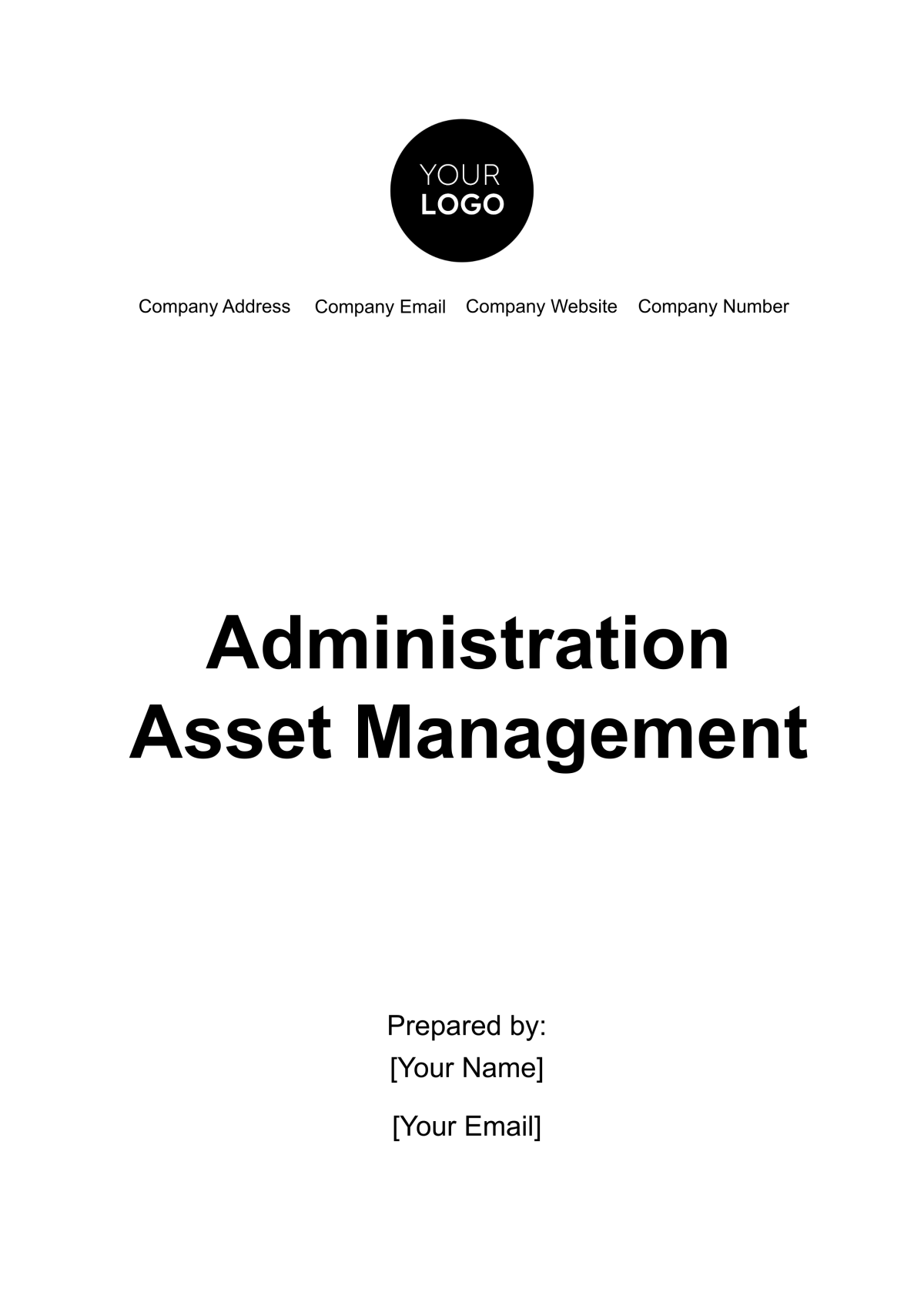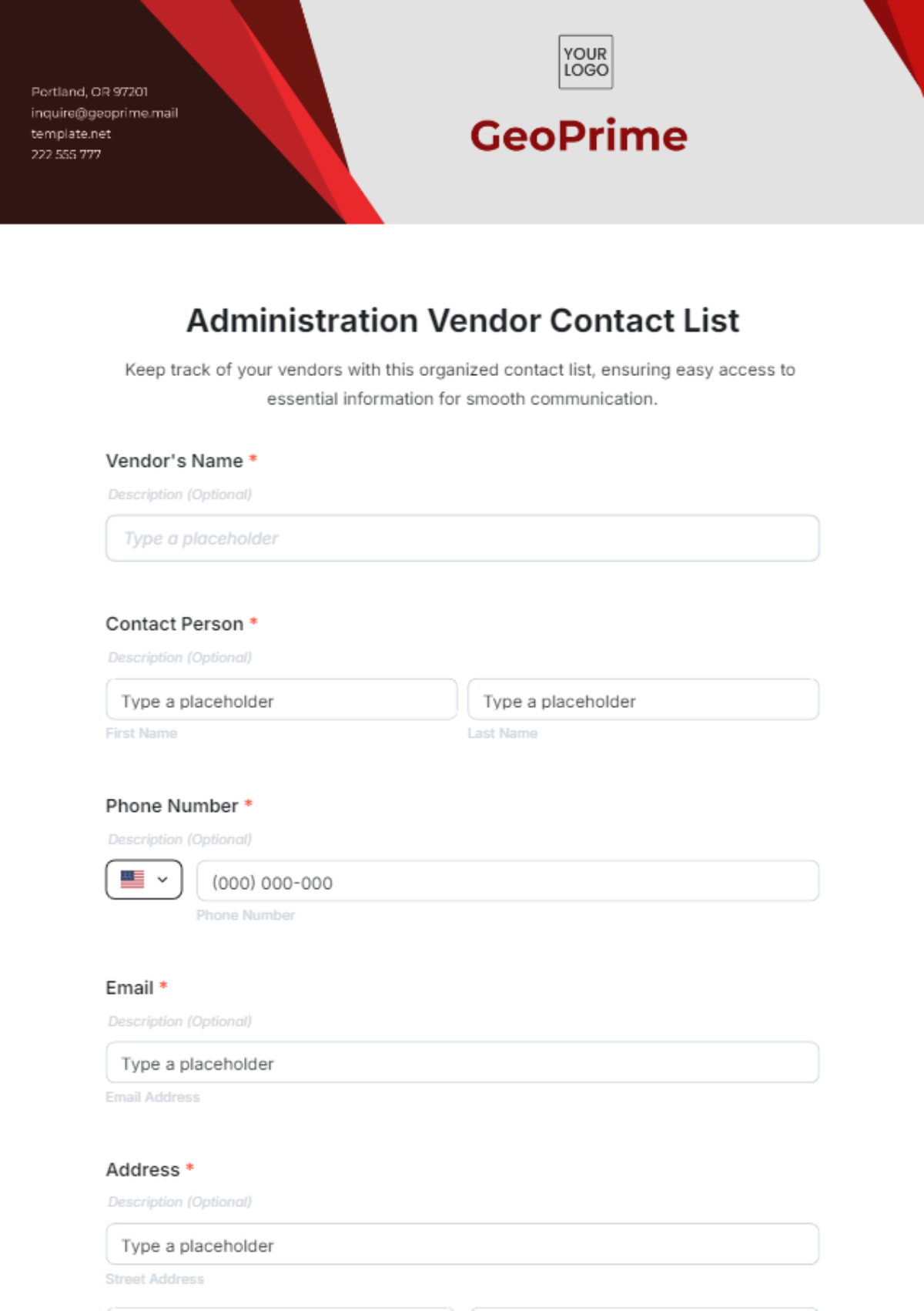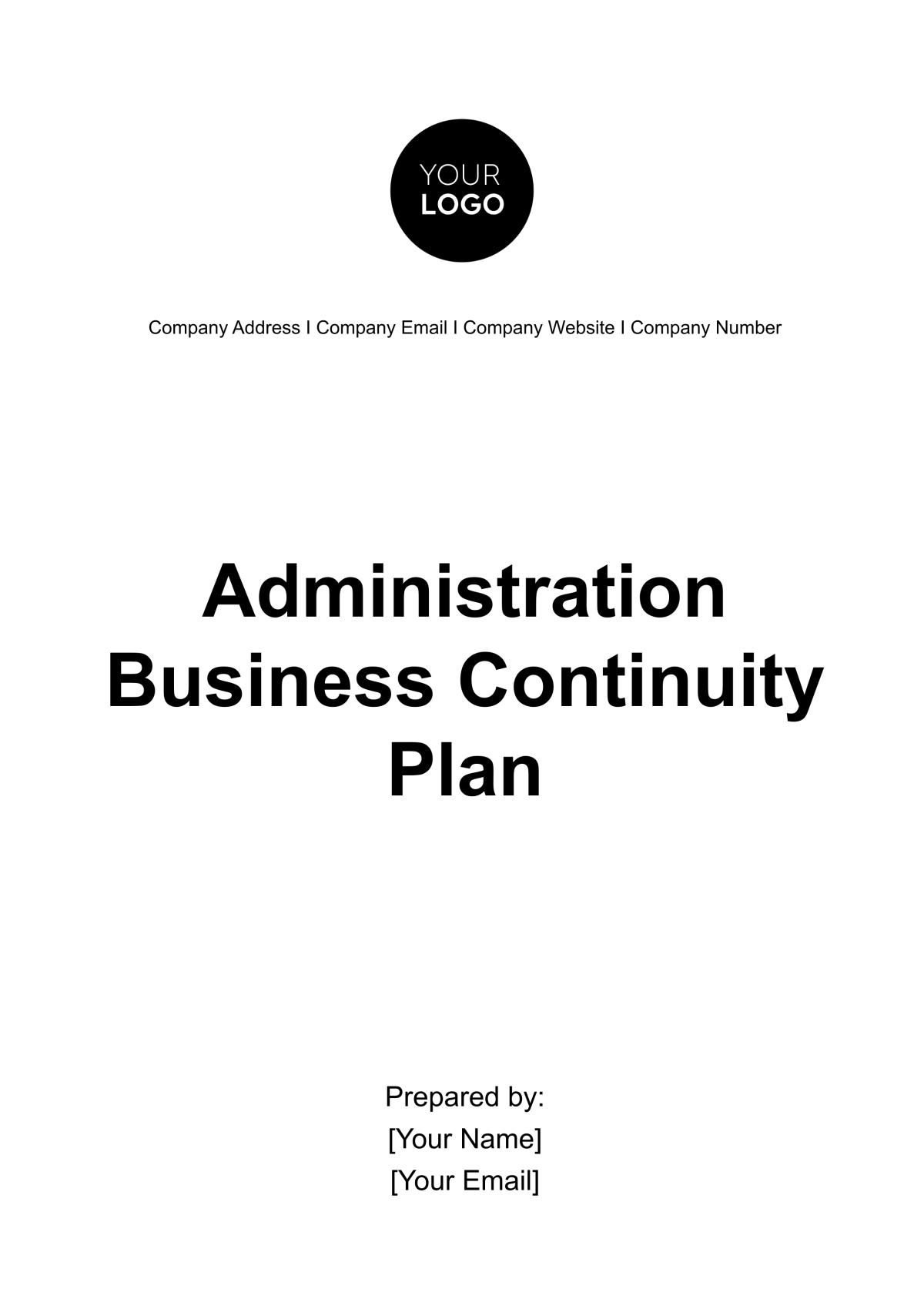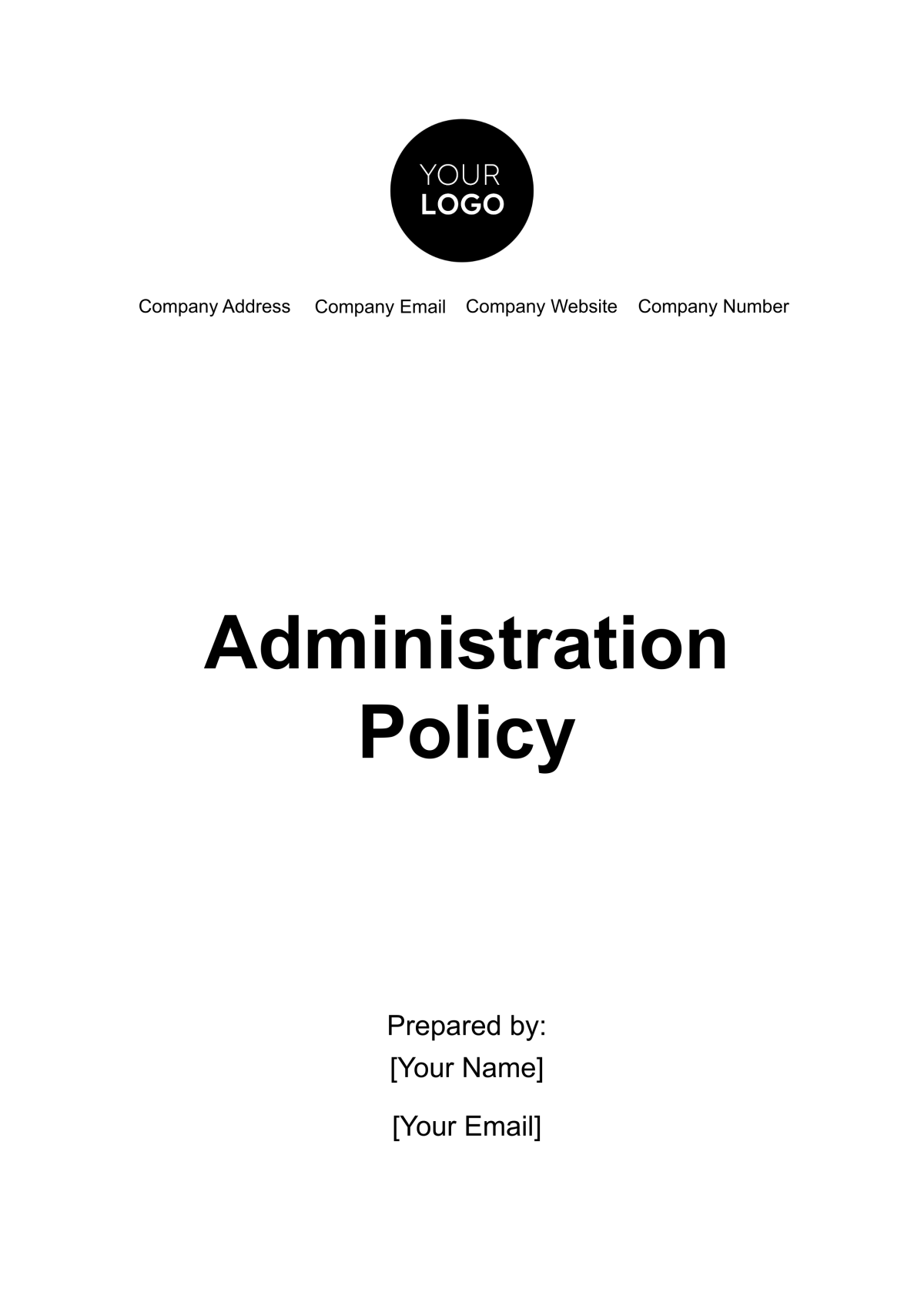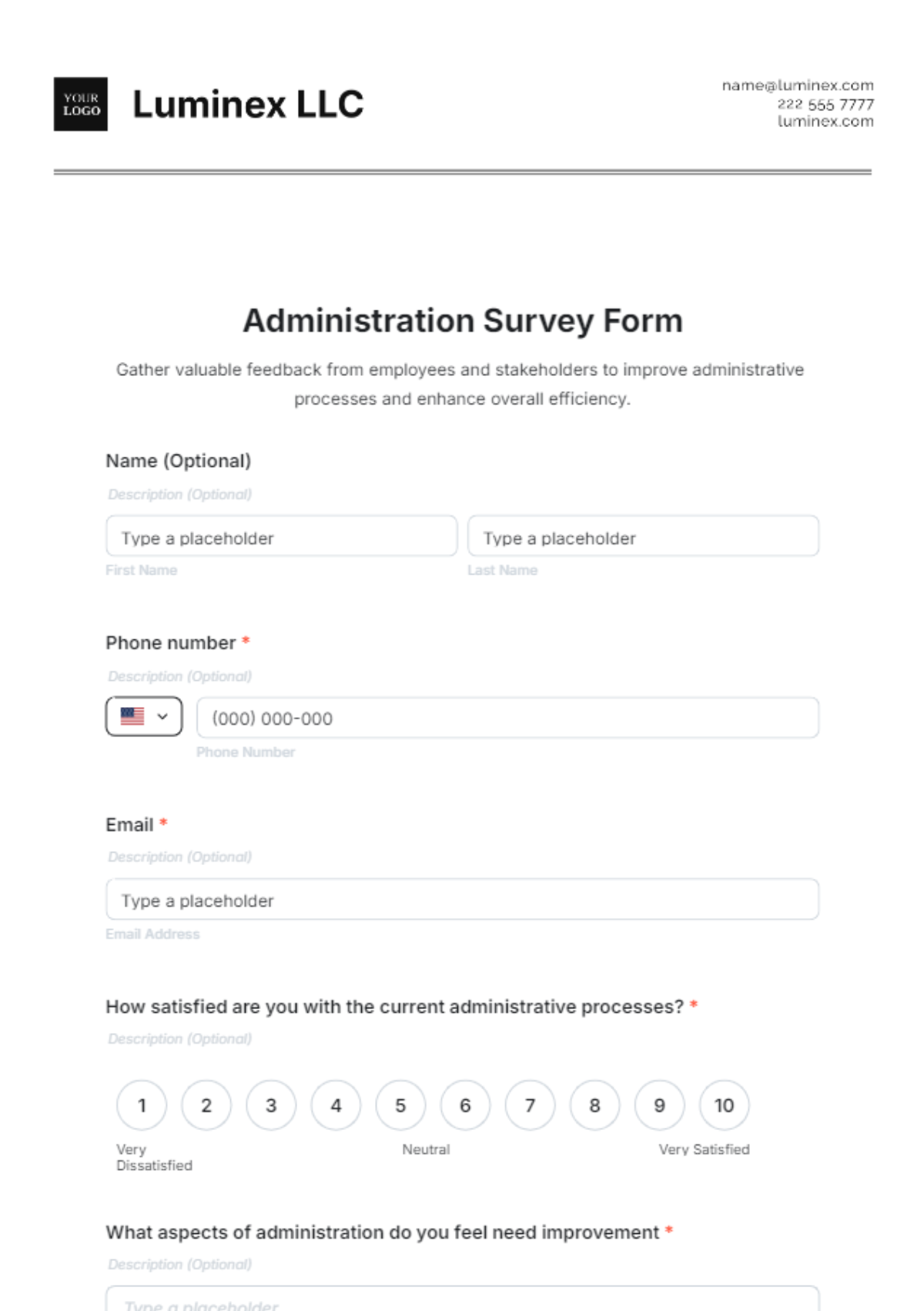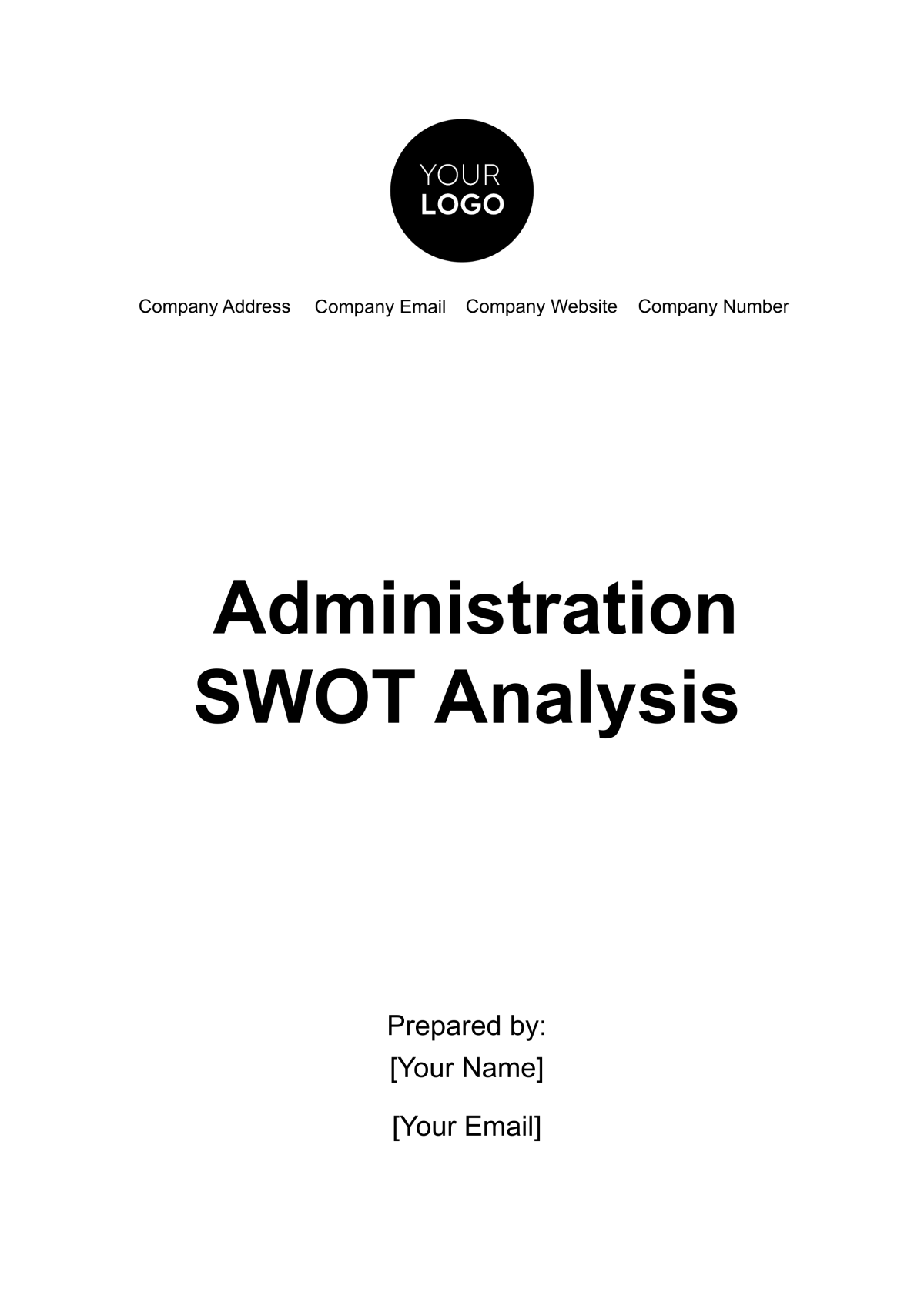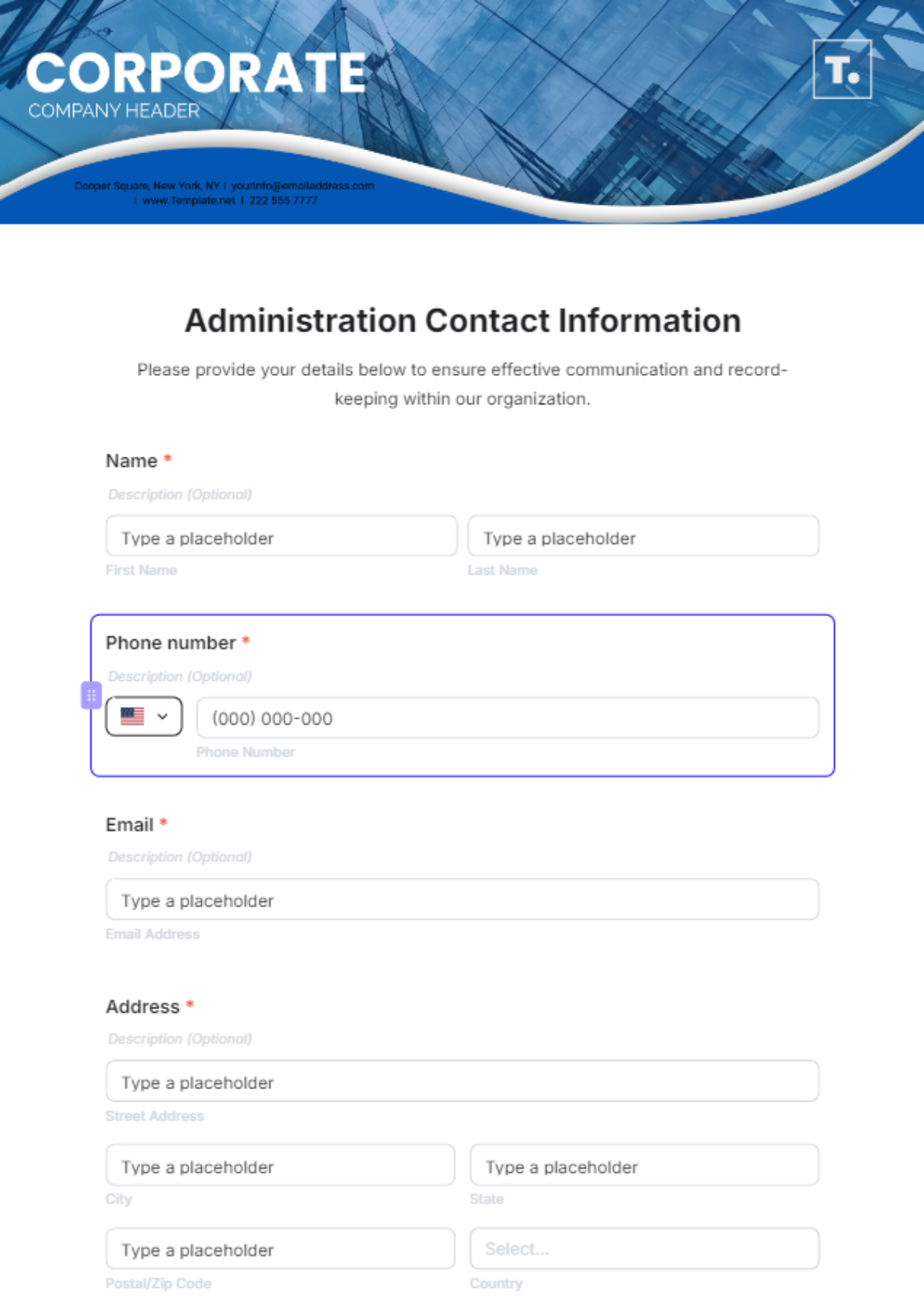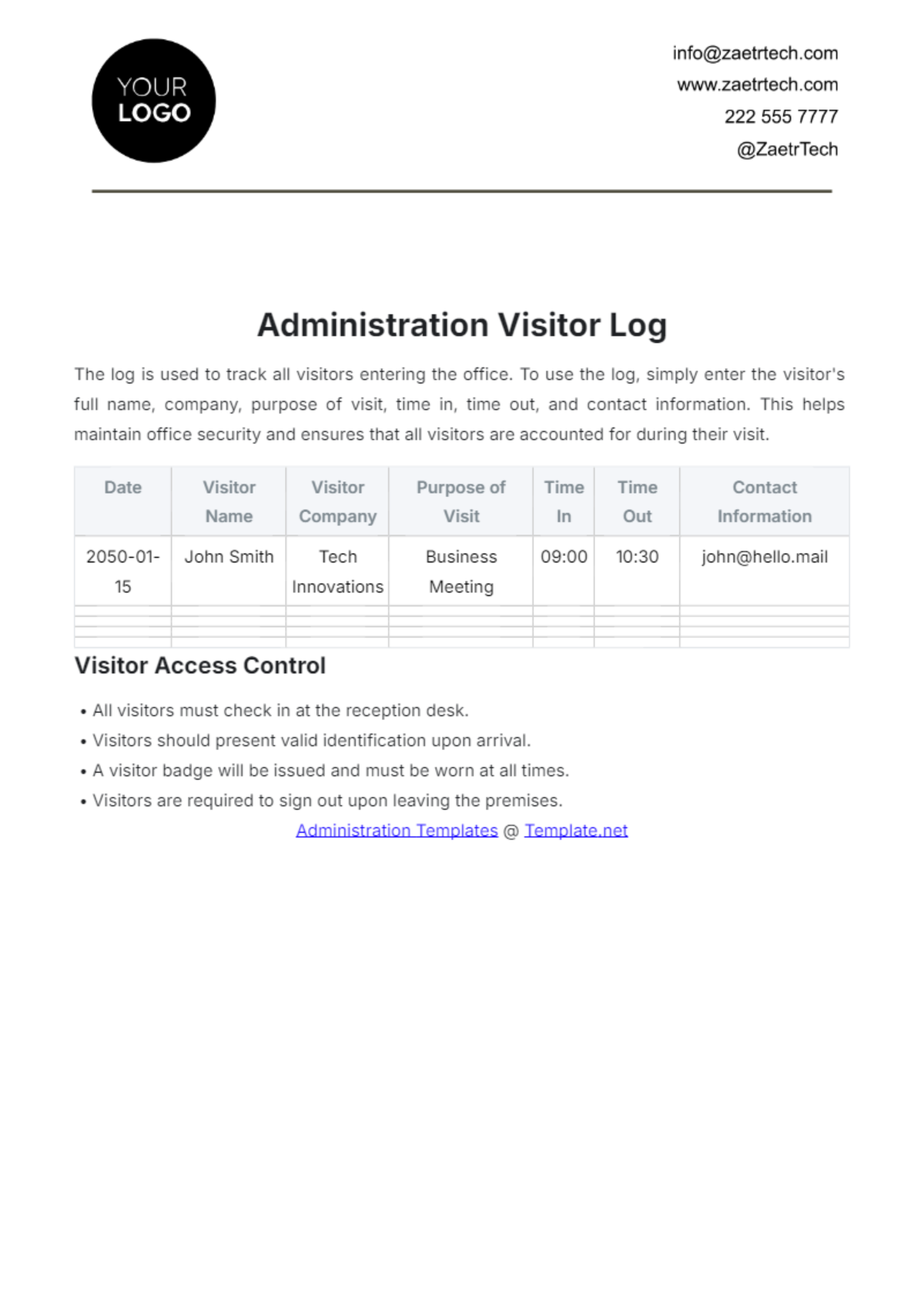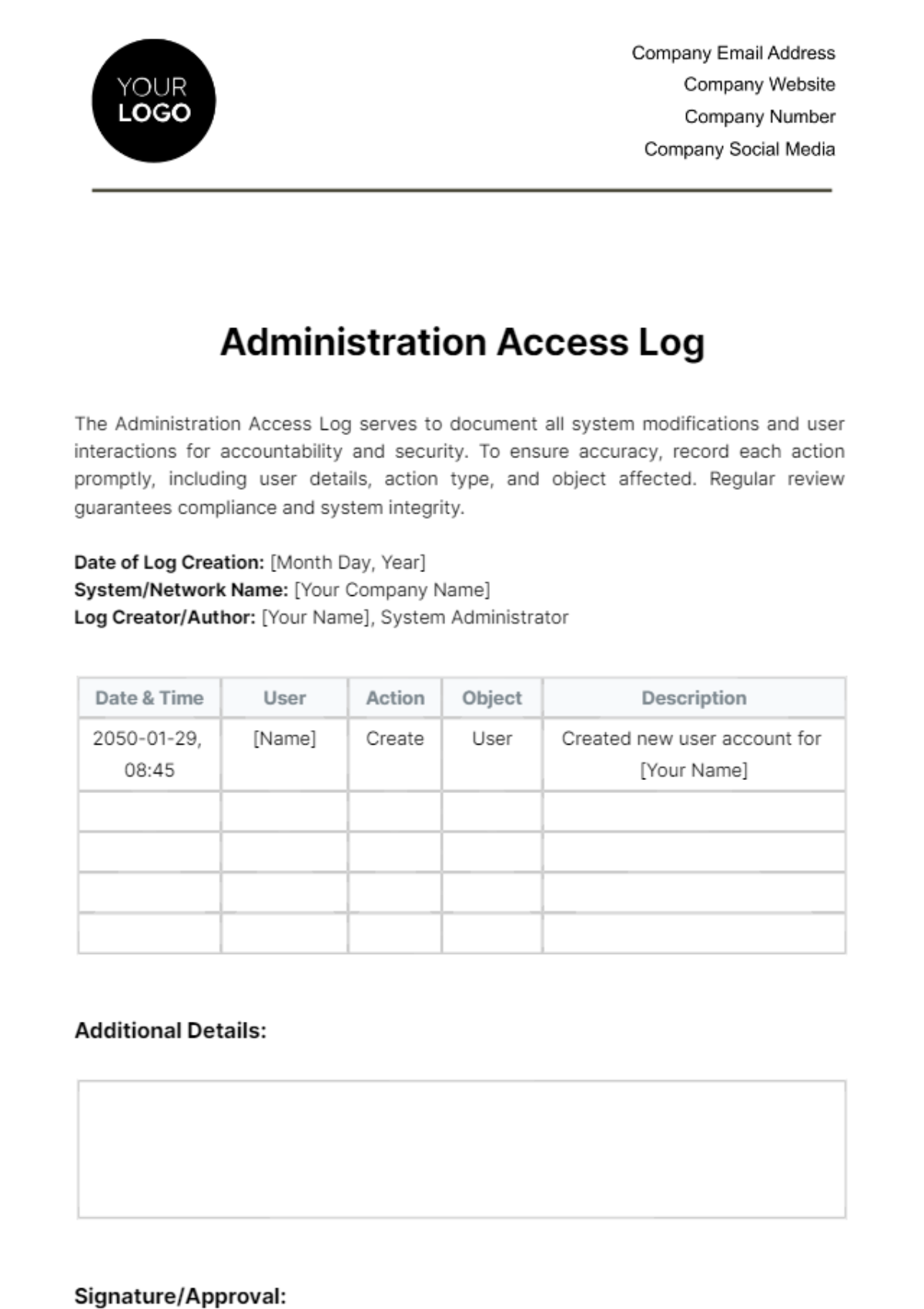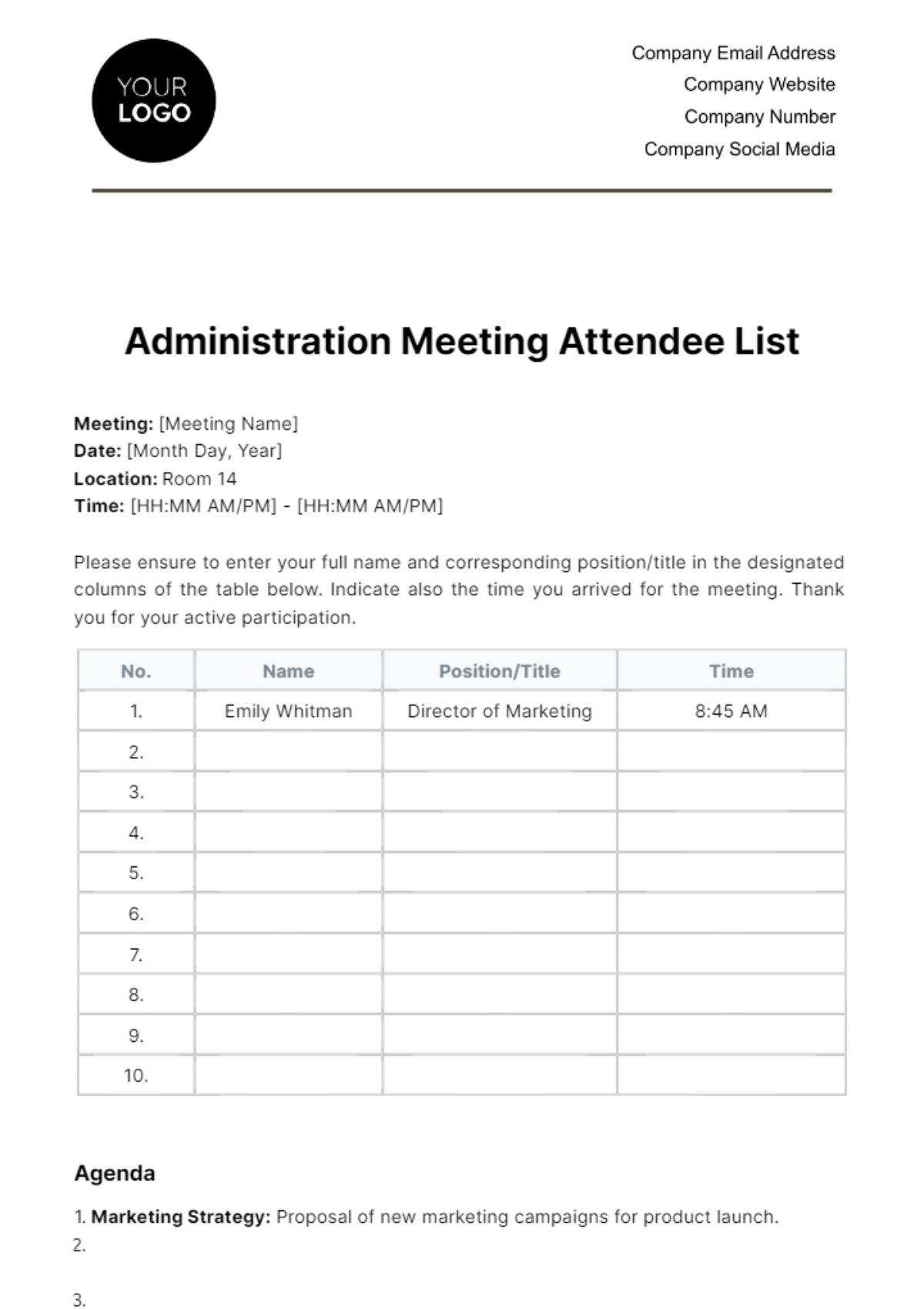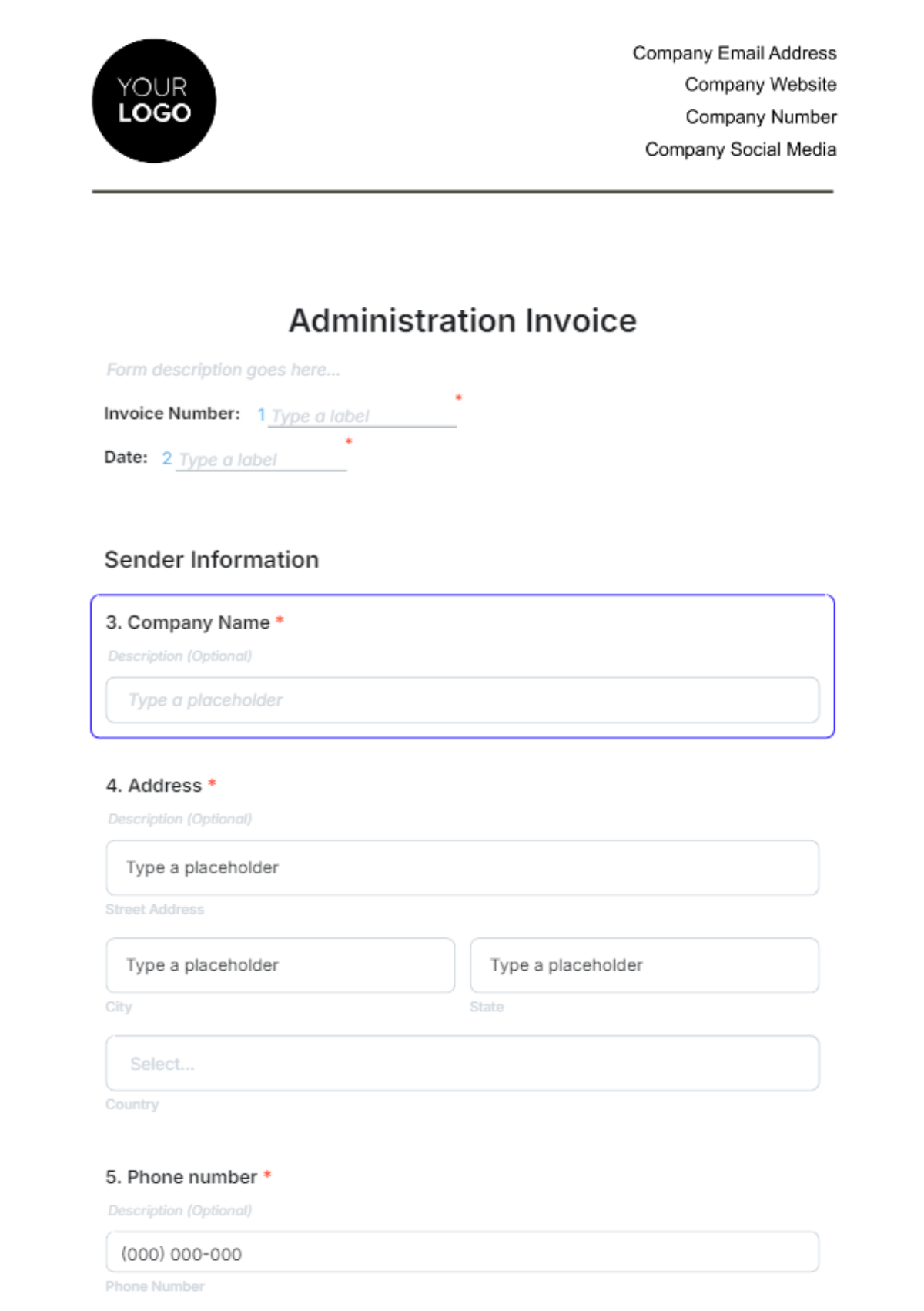Free Administration Assistant Guide Template
Administration Assistant Guide
I. Introduction
Welcome to the Administration Assistant Guide for [Your Company Name]. As an essential member of our team, your role as an Administrative Assistant is pivotal in ensuring the smooth and efficient operation of our company. This guide is designed to equip you with the knowledge, tools, and best practices necessary to excel in your position. It will provide you with a comprehensive understanding of your responsibilities, expectations, and the resources available to support you in your role. At [Your Company Name], we recognize that our success depends on the collective efforts of our employees, and as an Administrative Assistant, you play a crucial role in maintaining the day-to-day functions that allow us to achieve our goals.
The guide is structured to offer clear and practical information that aligns with the legal standards and best practices in the United States. From managing communications and scheduling to handling sensitive information and supporting team projects, this guide will serve as your go-to resource. We encourage you to familiarize yourself with its contents and use it as a reference throughout your tenure with [Your Company Name]. Your contributions are valued, and we are committed to supporting your growth and success within the company.
II. Responsibilities
In this section, you will find an overview of the essential duties and tasks expected of you as an Administration Assistant at [Your Company Name]. Your role is integral to ensuring smooth operations and effective office management. Familiarizing yourself with these responsibilities will help you contribute efficiently and support our company's daily functions.
A. General Administrative Duties
As an Administration Assistant, you are expected to handle various administrative tasks that help keep the office running smoothly.
Answering and directing phone calls
Organizing and scheduling appointments
Planning meetings and taking detailed minutes
Maintaining contact lists
Producing and distributing correspondence memos, letters, faxes, and forms
B. Office Management
You may also be required to manage certain aspects of the office environment to ensure operational efficiency.
Ordering office supplies and ensuring adequate stock levels
Maintaining office filing systems
Coordinating the maintenance of office equipment
Liaising with facility management vendors
III. Skills Required
In this section, we highlight the key skills necessary for success as an Administration Assistant at [Your Company Name]. Proficiency in organizational and communication skills is essential for managing tasks effectively and interacting professionally with colleagues, clients, and suppliers. Understanding and developing these skills will enhance your ability to perform your role efficiently and contribute to the overall success of the company.
A. Organizational Skills
Strong organizational skills are a must for managing multiple tasks efficiently.
Maintaining a clean and organized workspace
Effective time management
Prioritizing tasks based on importance and deadlines
B. Communication Skills
Effective communication is crucial in your role for dealing with colleagues, clients, and suppliers.
Verbal communication for phone and in-person interactions
Written communication for emails, reports, and memos
IV. Tools and Technologies
To perform your duties effectively at [Your Company Name], a strong grasp of essential tools and technologies is necessary. Mastery of software such as Microsoft Office Suite, Google Workspace, and accounting programs is vital for managing tasks and collaborating efficiently. Additionally, familiarity with office equipment like printers, fax machines, and telephone systems will support your daily functions and enhance your productivity in the workplace.
A. Software
Familiarity with the following software is often required:
Software | Purpose |
|---|---|
Microsoft Office Suite | Word processing, spreadsheets, presentation creation, email |
Google Workspace | Cloud storage, collaborative documents, email |
Accounting Software (e.g., QuickBooks) | Managing financial records |
B. Office Equipment
Proficiency with standard office equipment is essential:
Printer and scanner usage
Fax machines
Telephone systems
Photocopiers
V. Best Practices
Effective administration is crucial for maintaining the smooth operation of any business. At [Your Company Name], adhering to best practices in time management and professionalism is essential for fulfilling your role as an Administration Assistant. This section provides detailed guidance on these areas to help you perform your duties efficiently and uphold the company's standards.
A. Time Management
Time management is a fundamental skill that ensures tasks are completed efficiently and deadlines are met. Effective time management involves several strategies and tools that can help you stay organized and productive:
Use a Planner or Calendar:
Employing a planner or digital calendar is essential for tracking tasks, appointments, and deadlines. Regularly update your calendar with scheduled meetings, deadlines, and reminders. Utilize features like alerts and notifications to stay on top of your commitments. Consider using software such as Microsoft Outlook or Google Calendar to integrate with other tools and streamline scheduling.
Set Realistic Deadlines:
When assigning deadlines to your tasks, be realistic about how much time each task will require. Avoid overloading yourself with tight deadlines, as this can lead to stress and reduced quality of work. Use historical data or estimates to gauge the time needed for similar tasks in the past. Break larger projects into smaller tasks and set deadlines for each segment to ensure steady progress.
Prioritize Tasks:
Efficient time management involves prioritizing tasks based on their importance and urgency. Use techniques such as the Eisenhower Matrix to categorize tasks into four quadrants: urgent and important, important but not urgent, urgent but not important, and neither urgent nor important. Focus on high-priority tasks first to ensure that critical deadlines are met.
Create a To-Do List:
A daily or weekly to-do list helps you keep track of tasks that need to be completed. Organize your list by priority and deadlines. Review and update the list regularly to reflect any changes in your workload or new tasks. Tools like task management software (e.g., Todoist, Asana) can help you manage and track your tasks efficiently.
Avoid Multitasking:
Multitasking can lead to decreased efficiency and increased errors. Focus on one task at a time to ensure that you complete it thoroughly before moving on to the next. Allocate specific time blocks for each task and minimize distractions during these periods to maintain focus and productivity.
Delegate When Necessary:
Effective delegation can help manage your workload and ensure that tasks are completed efficiently. Identify tasks that can be delegated to other team members and provide clear instructions and deadlines. Ensure that the delegated tasks are within the capabilities of the person assigned and follow up to monitor progress.
Review and Reflect:
Regularly review your time management practices and reflect on what works best for you. Analyze completed tasks and projects to identify areas for improvement. Adjust your strategies and tools as needed to enhance your efficiency and effectiveness.
B. Professionalism
Maintaining professionalism is key to creating a positive work environment and reflecting well on yourself and [Your Company Name]. Professionalism encompasses various aspects of behavior, appearance, and communication:
Dress Appropriately:
Adhere to the company's dress code and wear attire that is suitable for the office environment. Ensure that your clothing is clean, neat, and professional. Dressing appropriately contributes to a positive impression and fosters a sense of respect and authority.
Maintain a Polite and Considerate Attitude:
Displaying politeness and consideration in all interactions helps build strong working relationships and fosters a positive office culture. Address colleagues, clients, and suppliers with respect and courtesy. Listen actively and respond thoughtfully to others' concerns and needs.
Handle Sensitive Information with Confidentiality:
As an Administration Assistant, you may have access to sensitive or confidential information. It is crucial to handle such information with the utmost discretion and adhere to privacy policies and regulations. Avoid discussing confidential matters with unauthorized individuals and securely store sensitive documents.
Demonstrate Integrity and Accountability:
Uphold the highest standards of integrity and accountability in your work. Take responsibility for your actions and decisions, and be honest and transparent in your communications. Address any mistakes promptly and work towards resolving issues with professionalism.
Communicate Effectively:
Clear and effective communication is essential for maintaining professionalism. Use appropriate language and tone in both written and verbal communications. Ensure that your messages are clear, concise, and free of errors. Be an active listener and seek clarification when needed.
Respect Office Etiquette:
Follow established office etiquette and norms to contribute to a harmonious work environment. This includes respecting others' workspaces, minimizing noise and disruptions, and adhering to meeting protocols. Be mindful of shared resources and ensure that you contribute to maintaining a clean and organized office.
Be Adaptable and Open to Feedback:
Professionalism involves being adaptable to changes and open to feedback. Embrace new tasks and responsibilities with a positive attitude and be willing to learn and grow in your role. Accept constructive feedback gracefully and use it as an opportunity for improvement.
Foster a Collaborative Environment:
Work collaboratively with colleagues and team members to achieve common goals. Support a team-oriented approach and contribute positively to group efforts. Share knowledge and resources and be willing to assist others in their tasks.
By adhering to these best practices in time management and professionalism, you will be well-equipped to excel in your role as an Administration Assistant at [Your Company Name]. Your dedication to these practices will contribute to your success and the overall effectiveness of the company.
VI. Conclusion
The role of an Administration Assistant at [Your Company Name] is both dynamic and integral to our daily operations. By mastering the skills outlined in this guide—such as effective time management, professionalism, and proficiency with essential tools and technologies—you will significantly contribute to the efficiency and success of our organization. Your ability to manage tasks effectively, communicate clearly, and maintain a high level of professionalism will not only support your colleagues but also enhance the overall work environment.
We trust that this guide will serve as a valuable resource throughout your tenure with us. Remember, your role is pivotal in helping [Your Company Name] achieve its goals and maintain its high standards of excellence. Should you have any questions or need further assistance, do not hesitate to reach out to your supervisor or consult the additional resources provided. We are excited to have you as part of our team and look forward to your continued growth and contributions. Welcome aboard, and here’s to a successful and rewarding journey with [Your Company Name].
